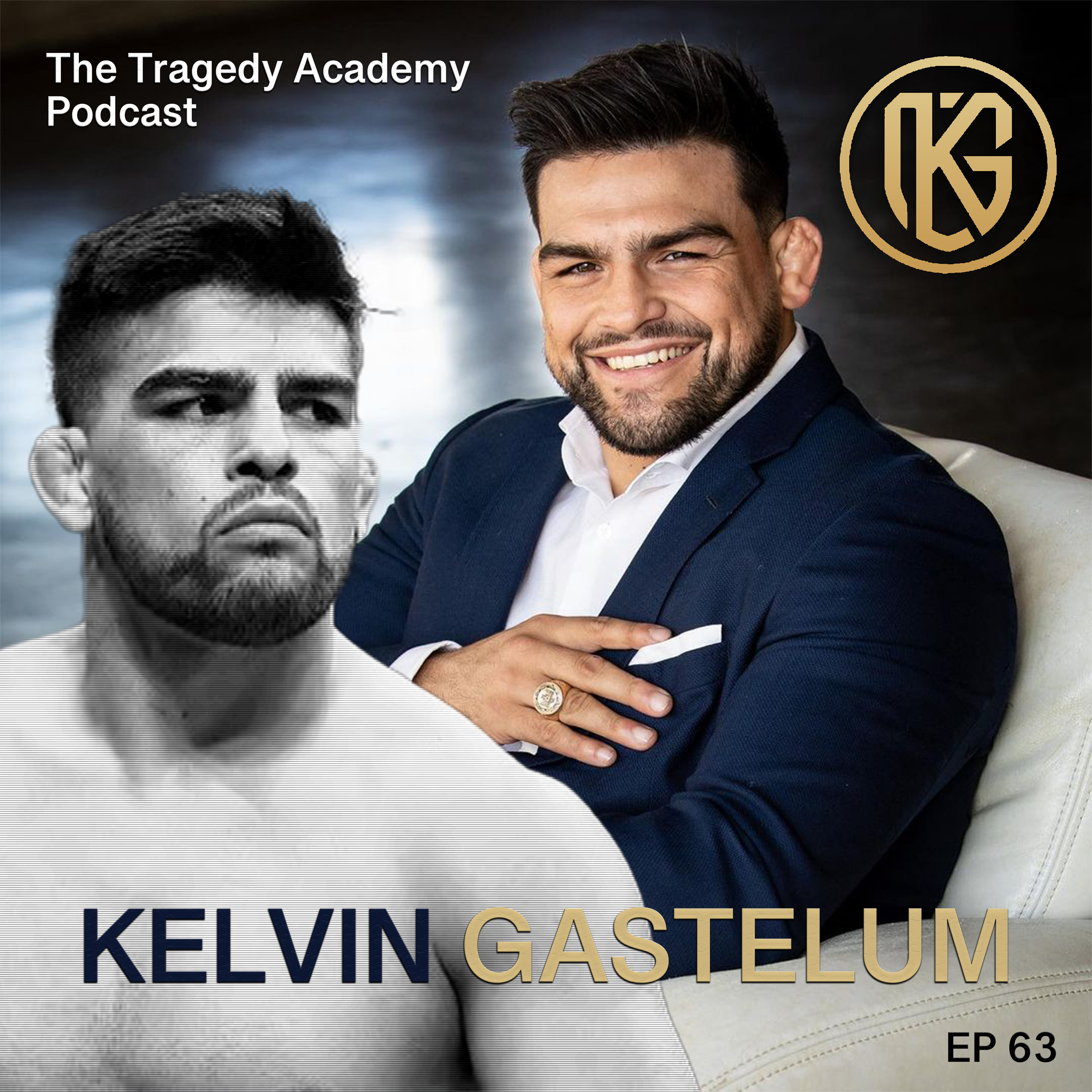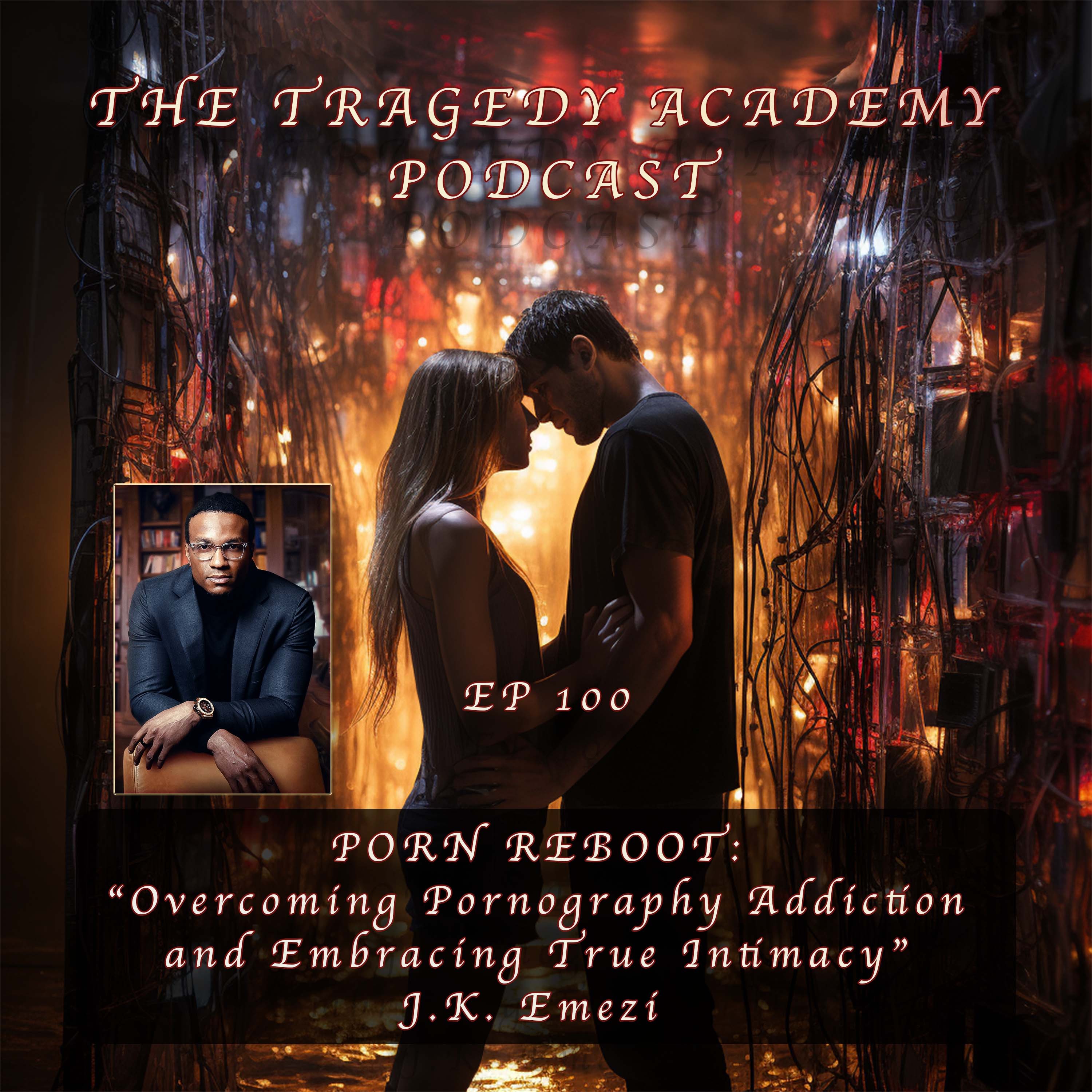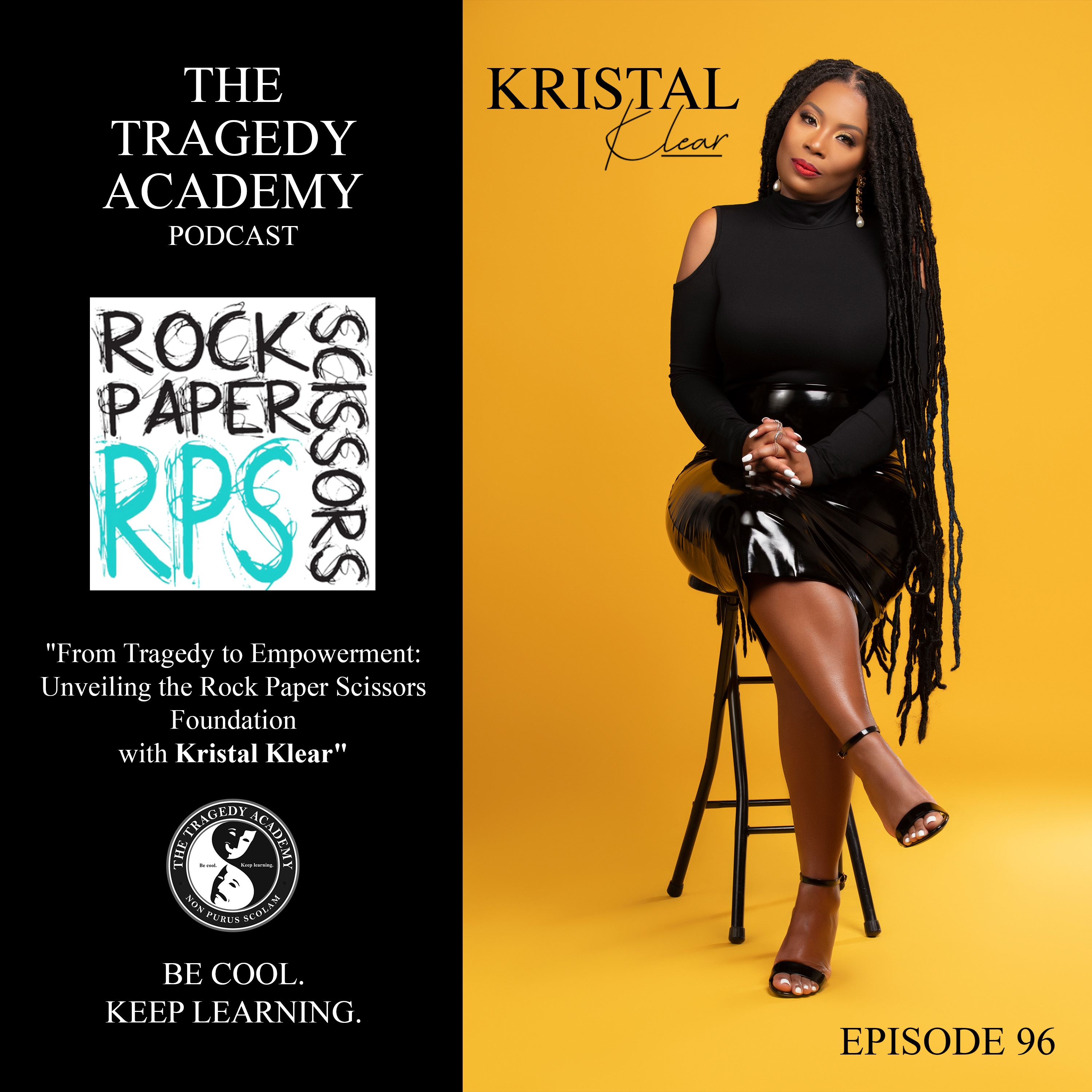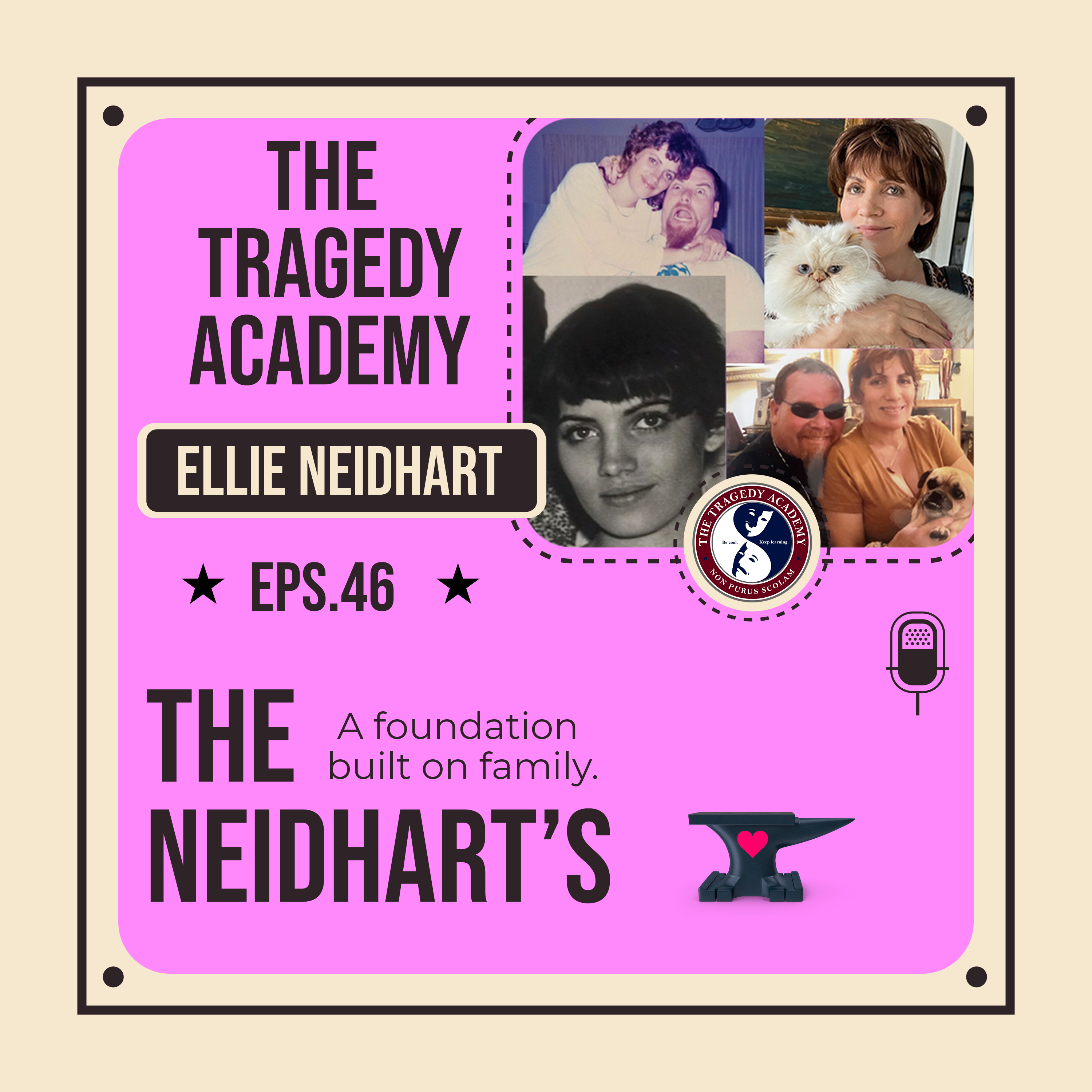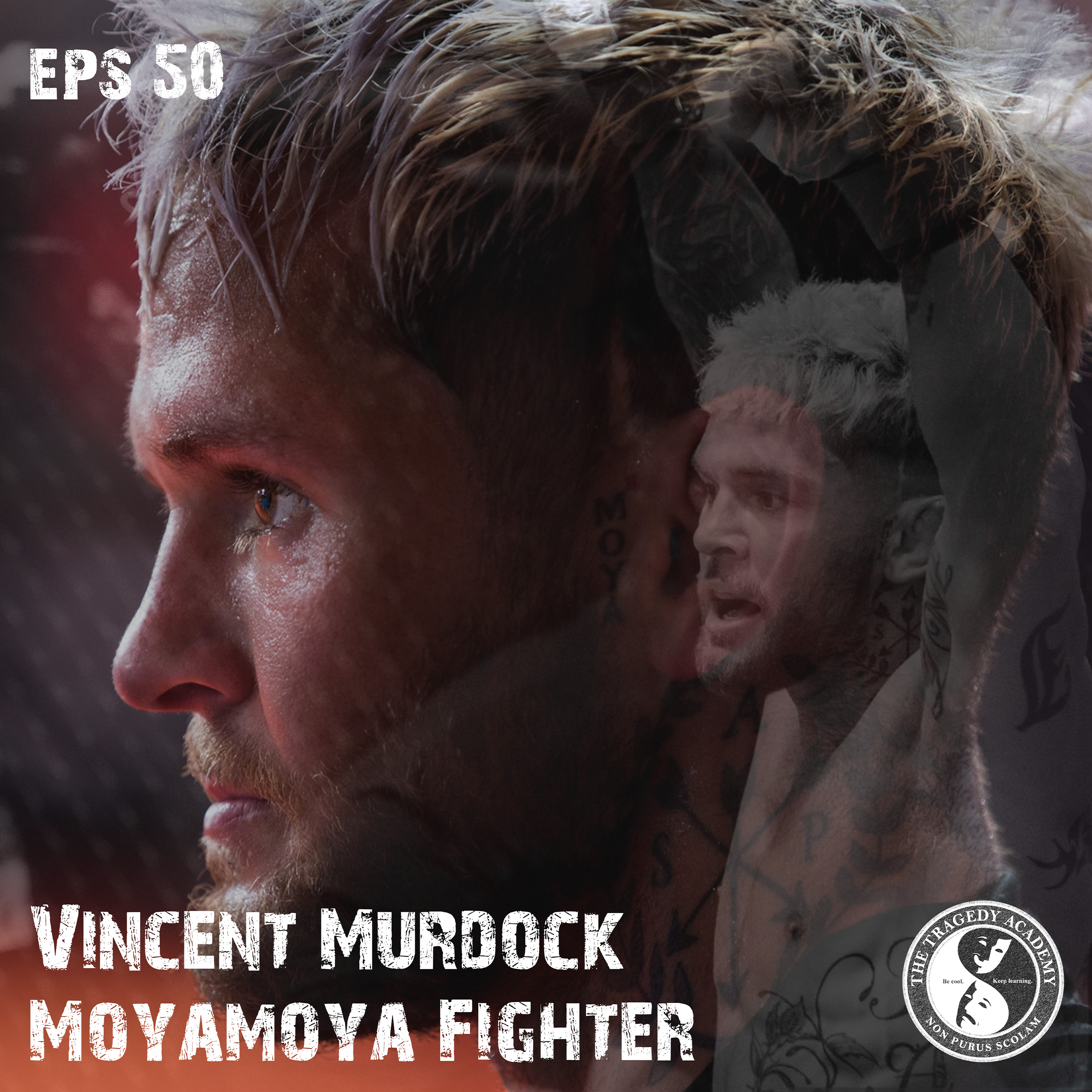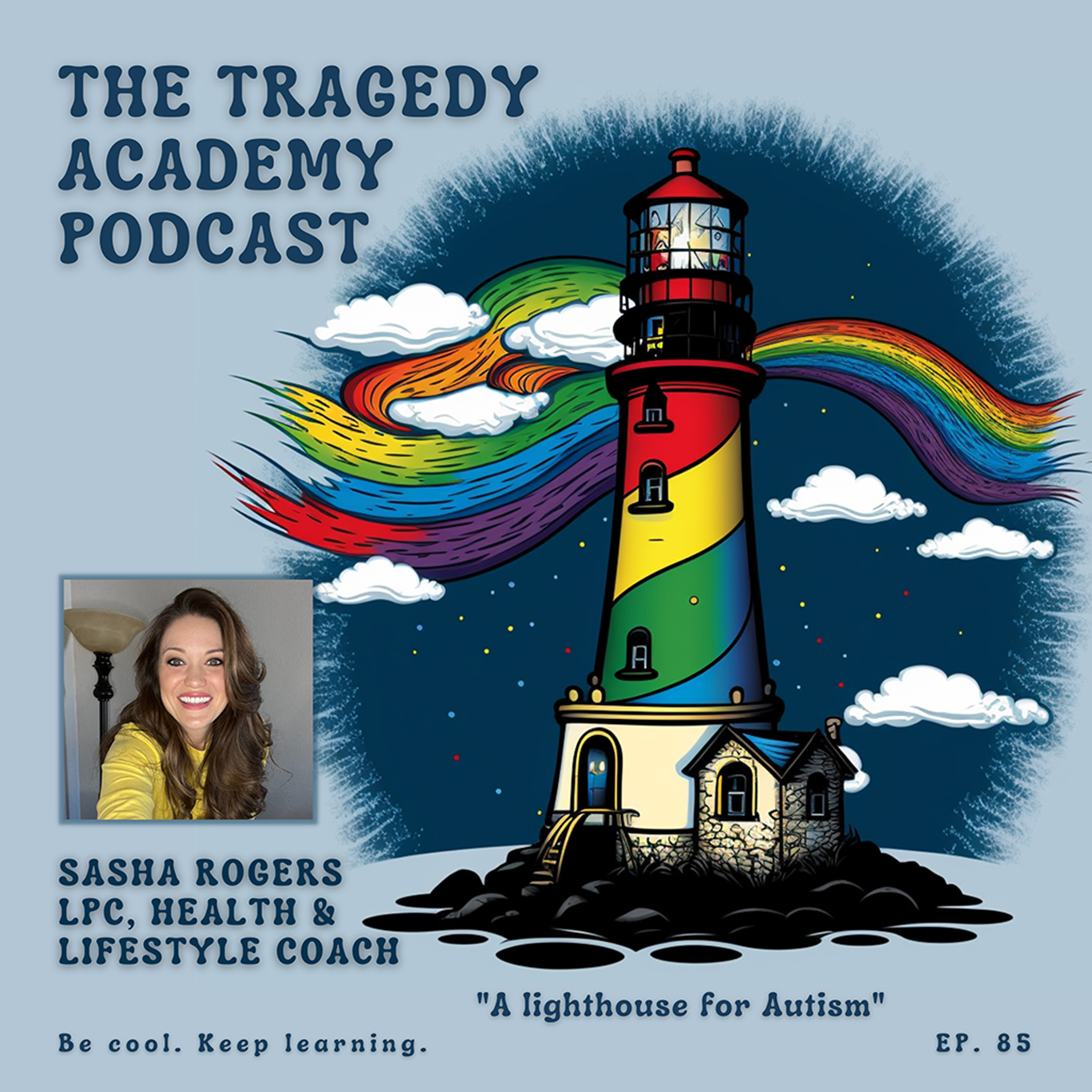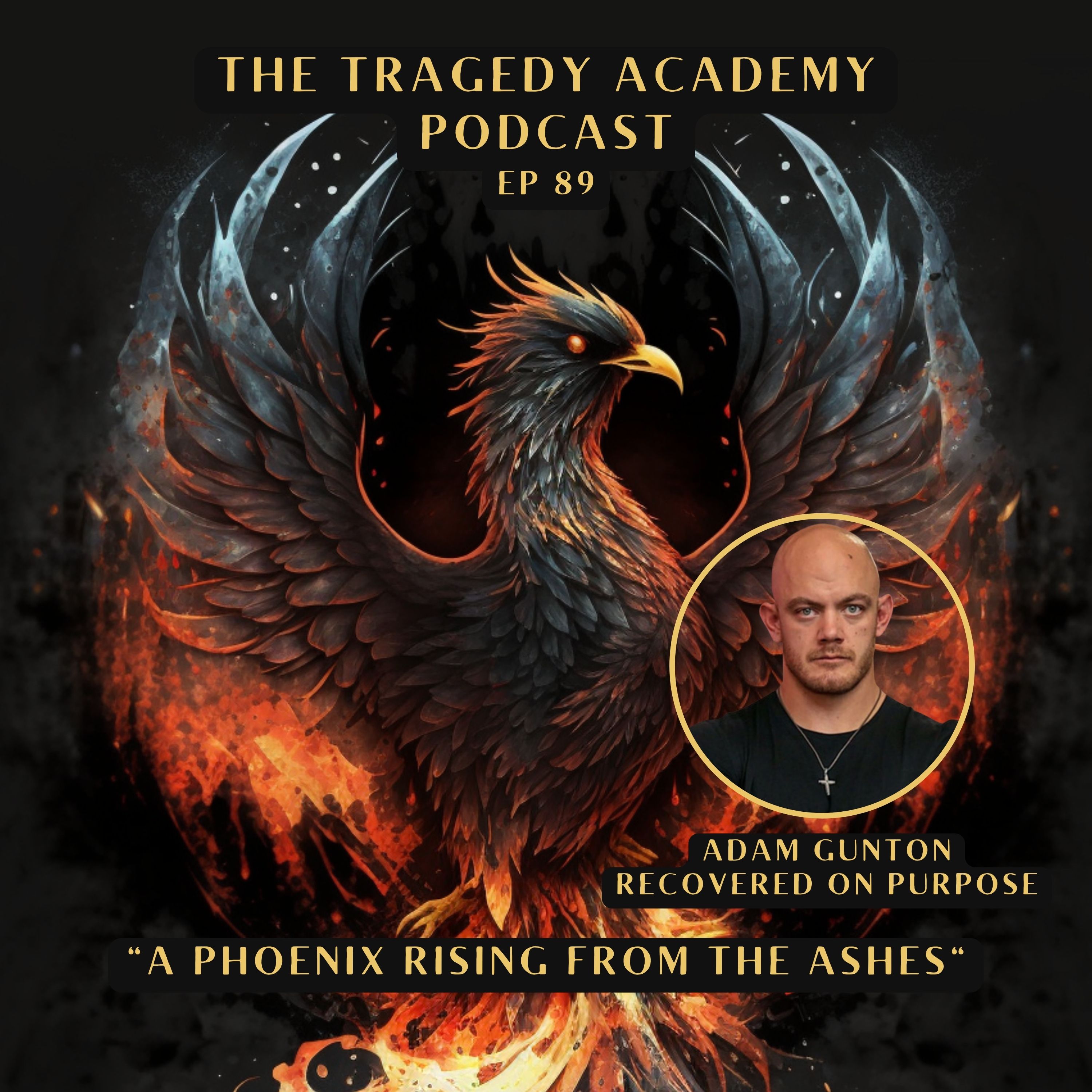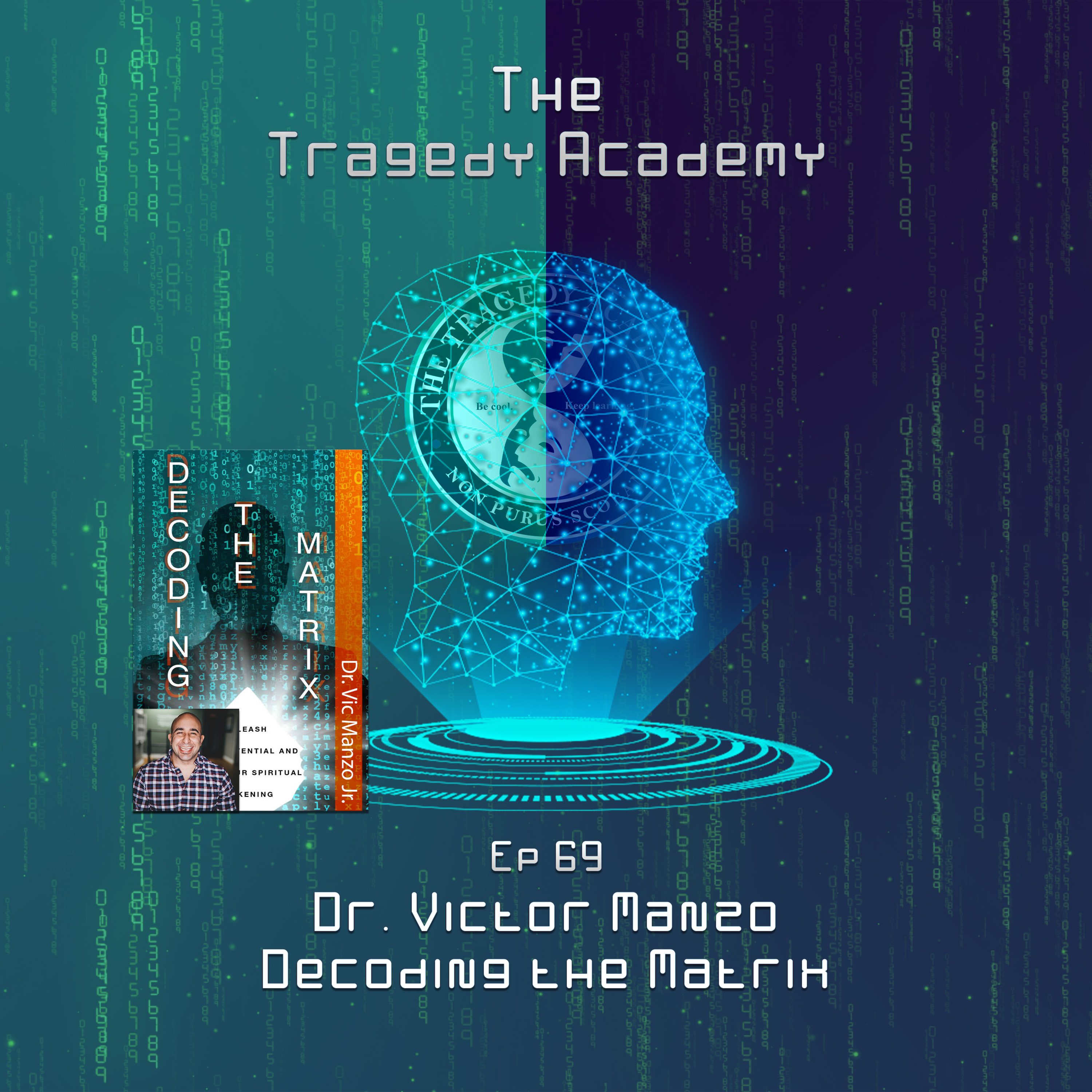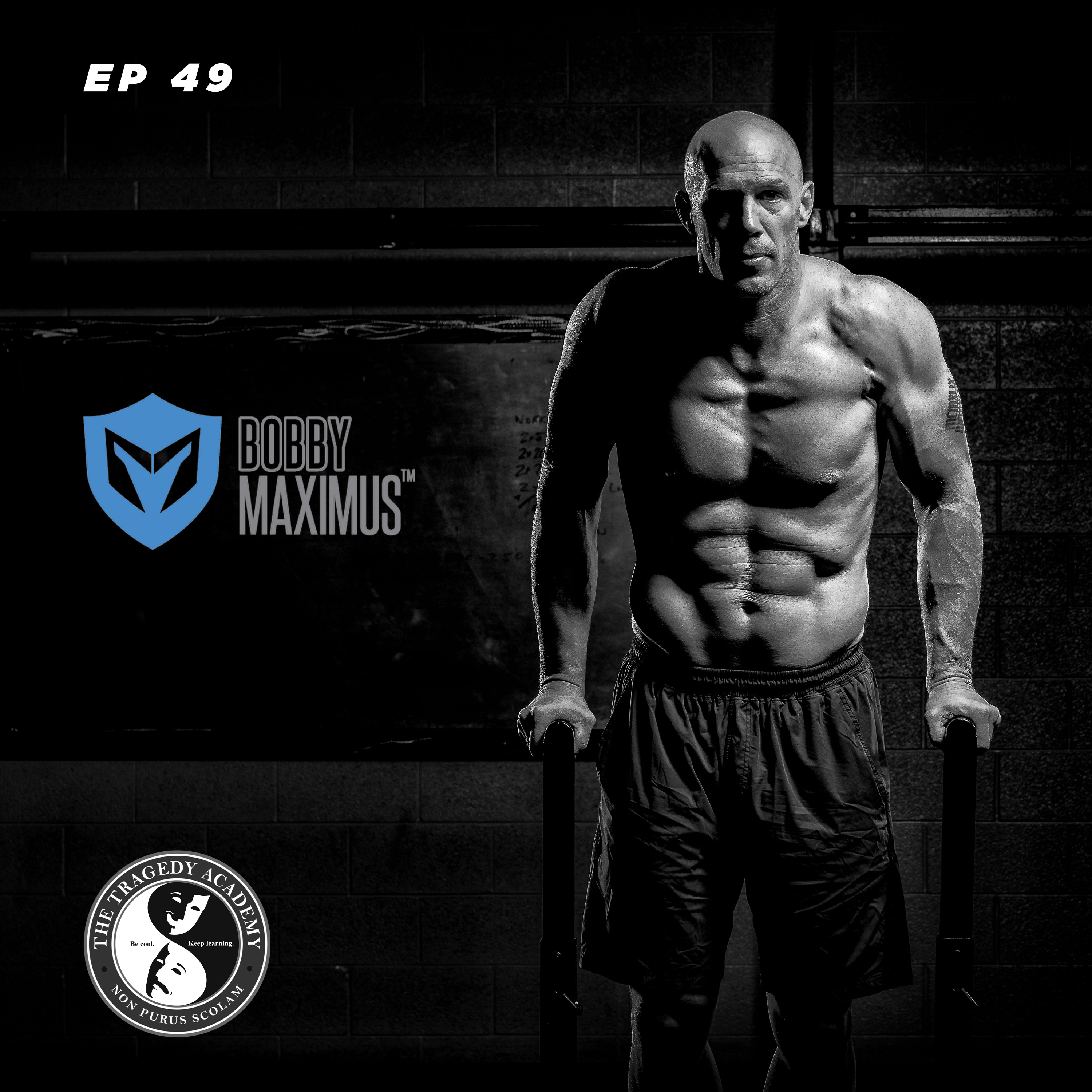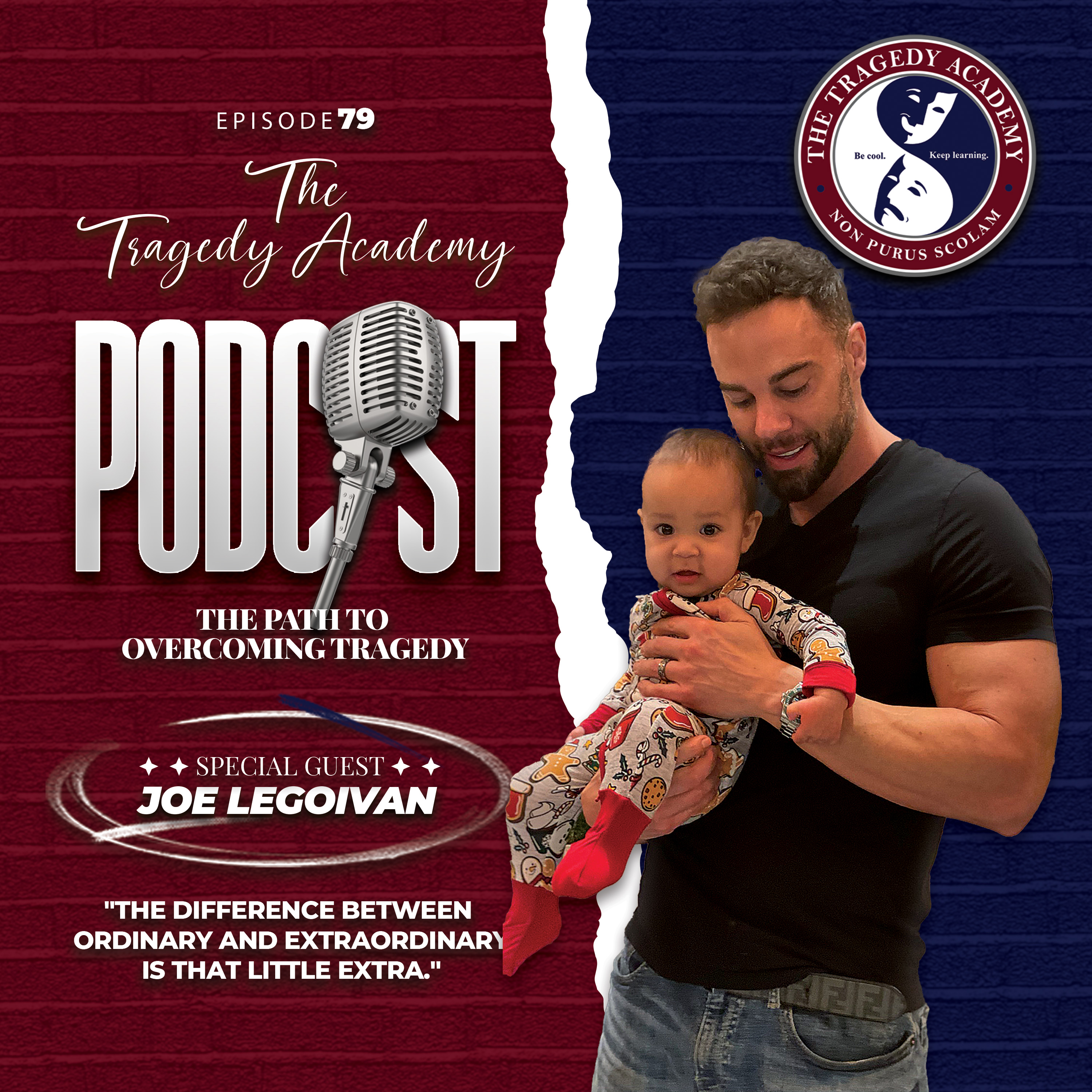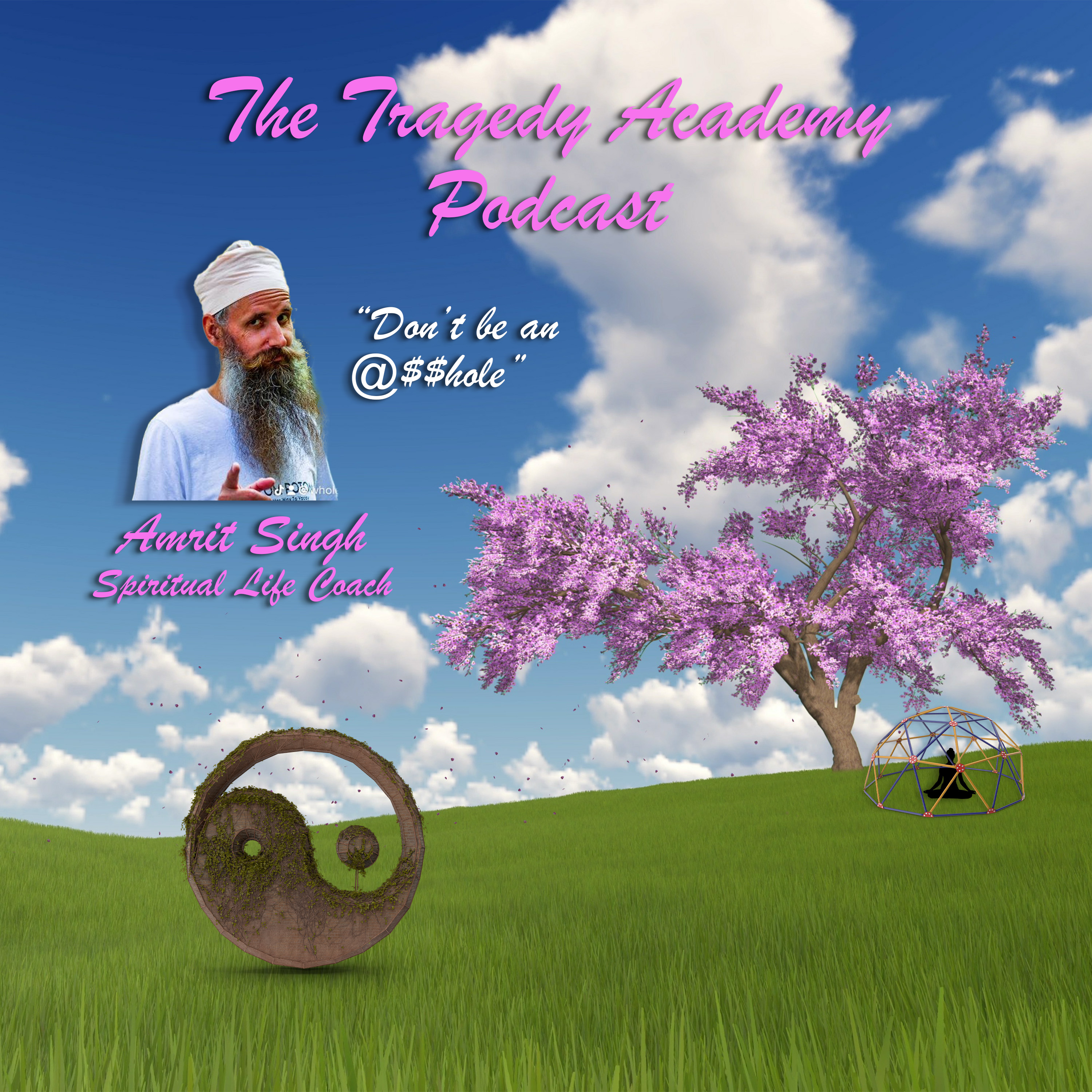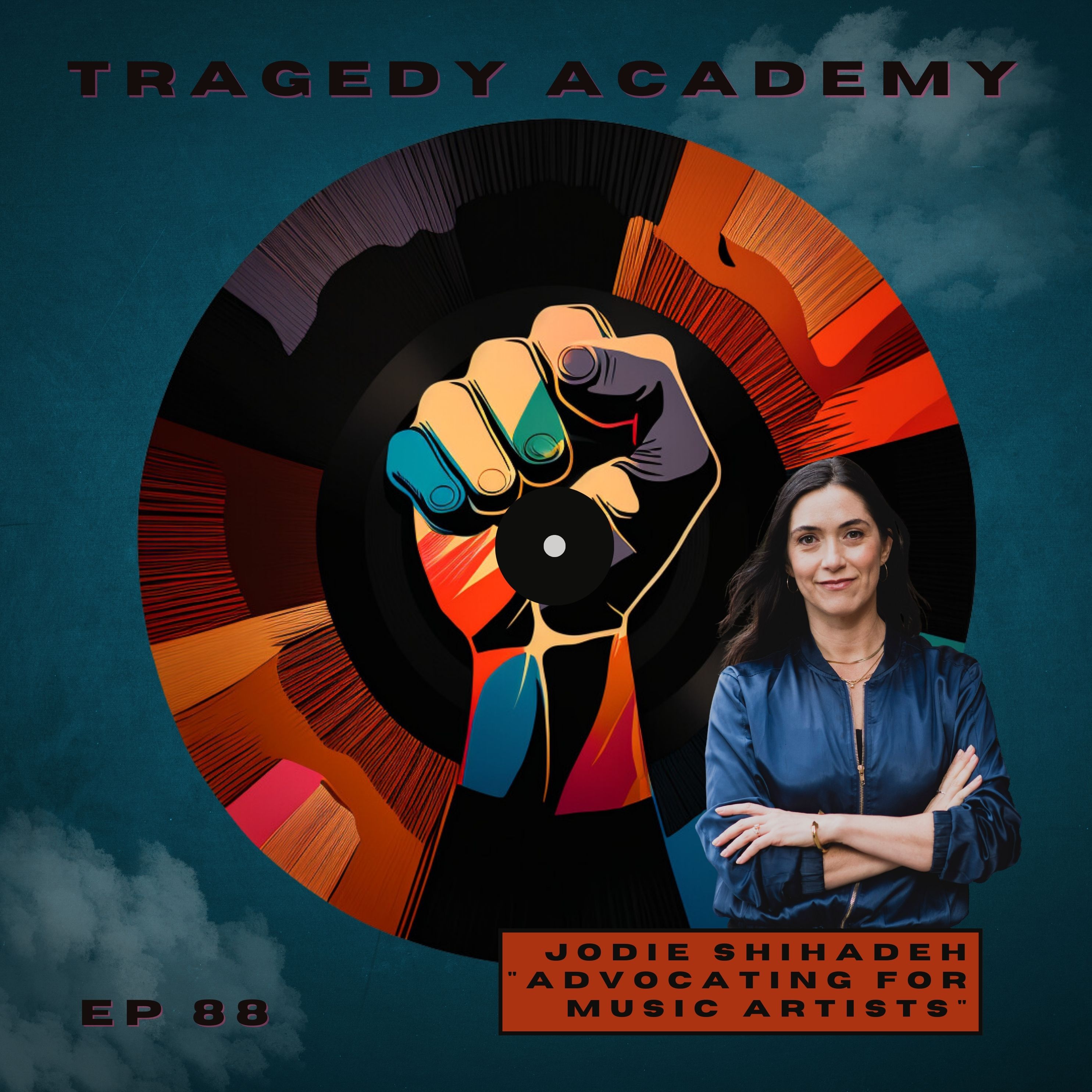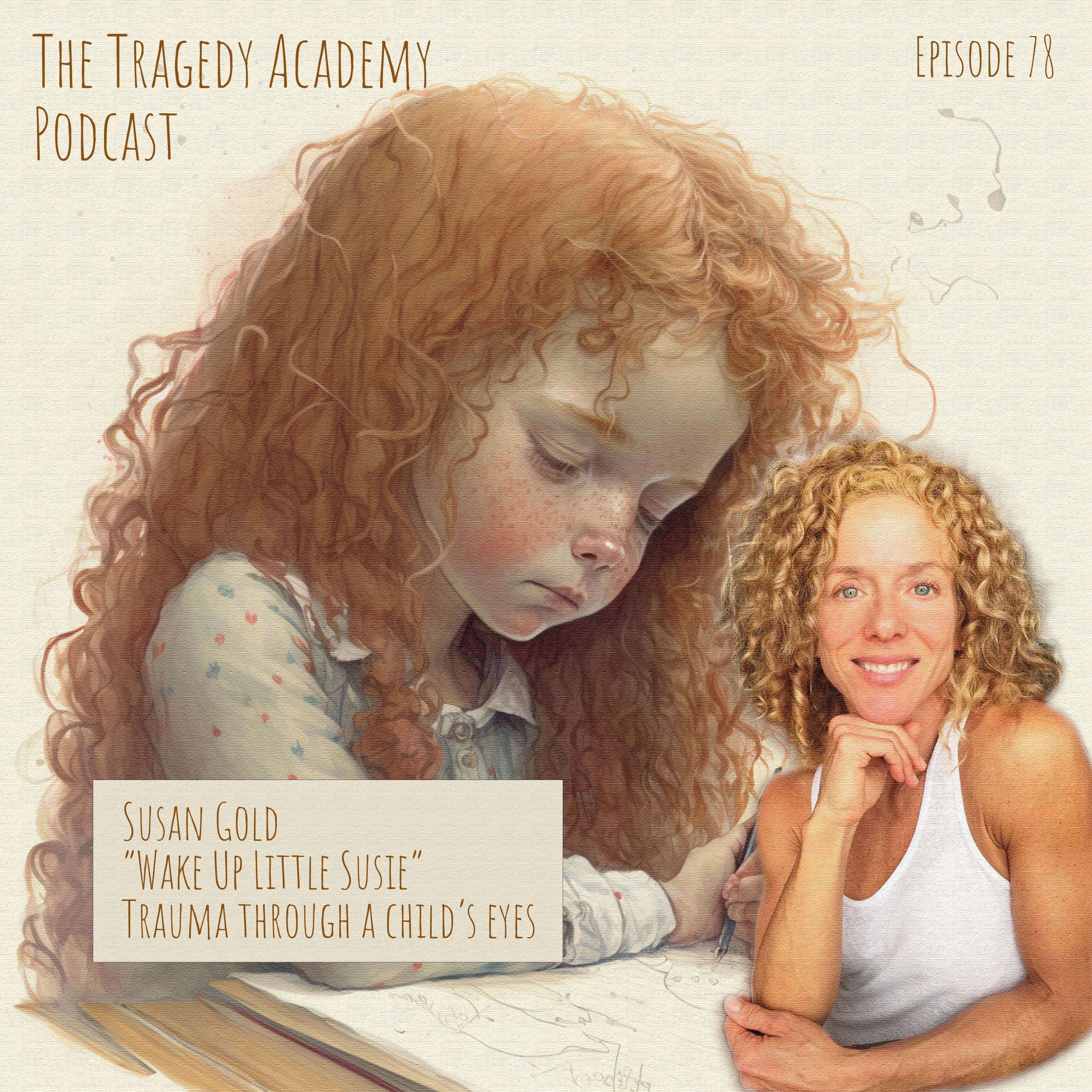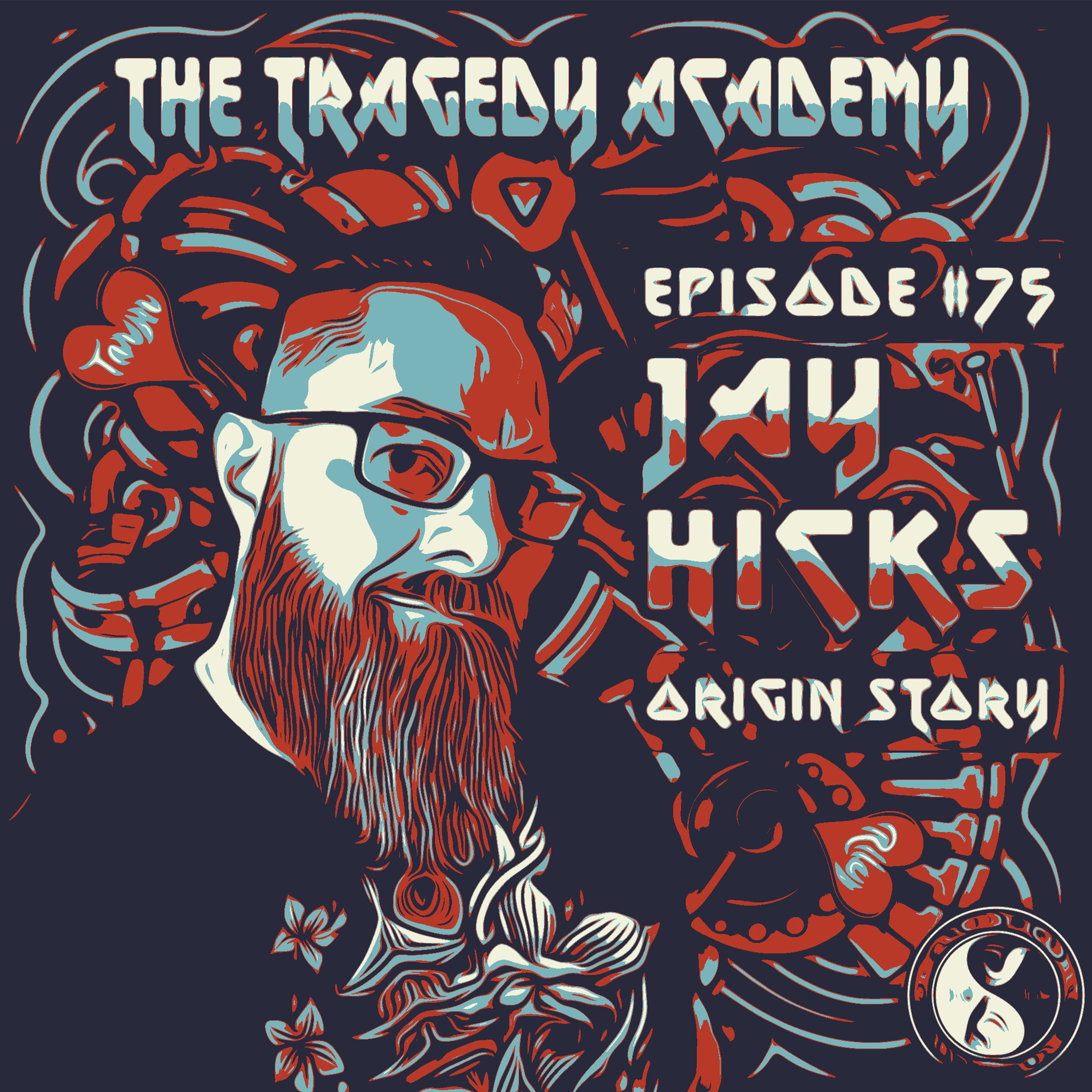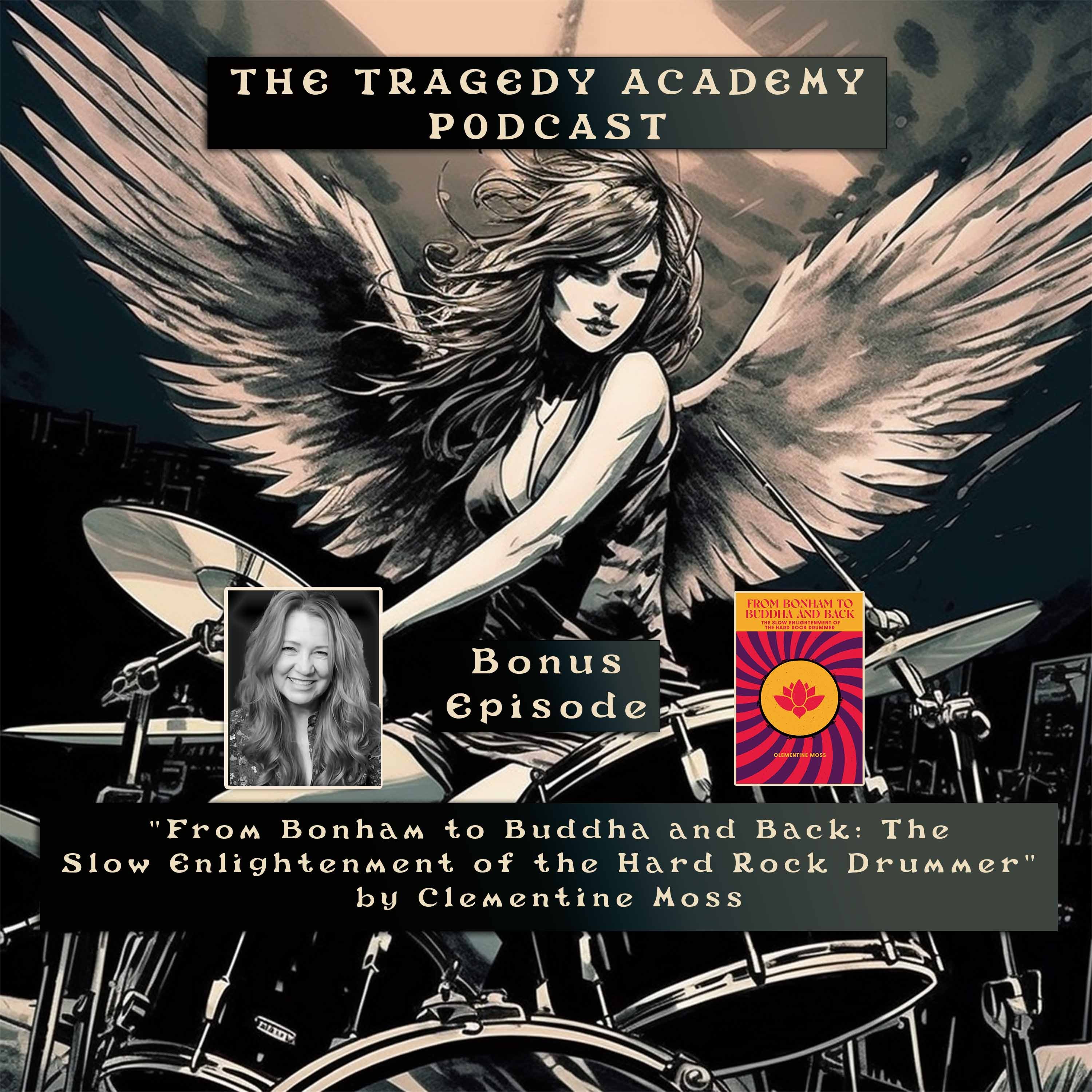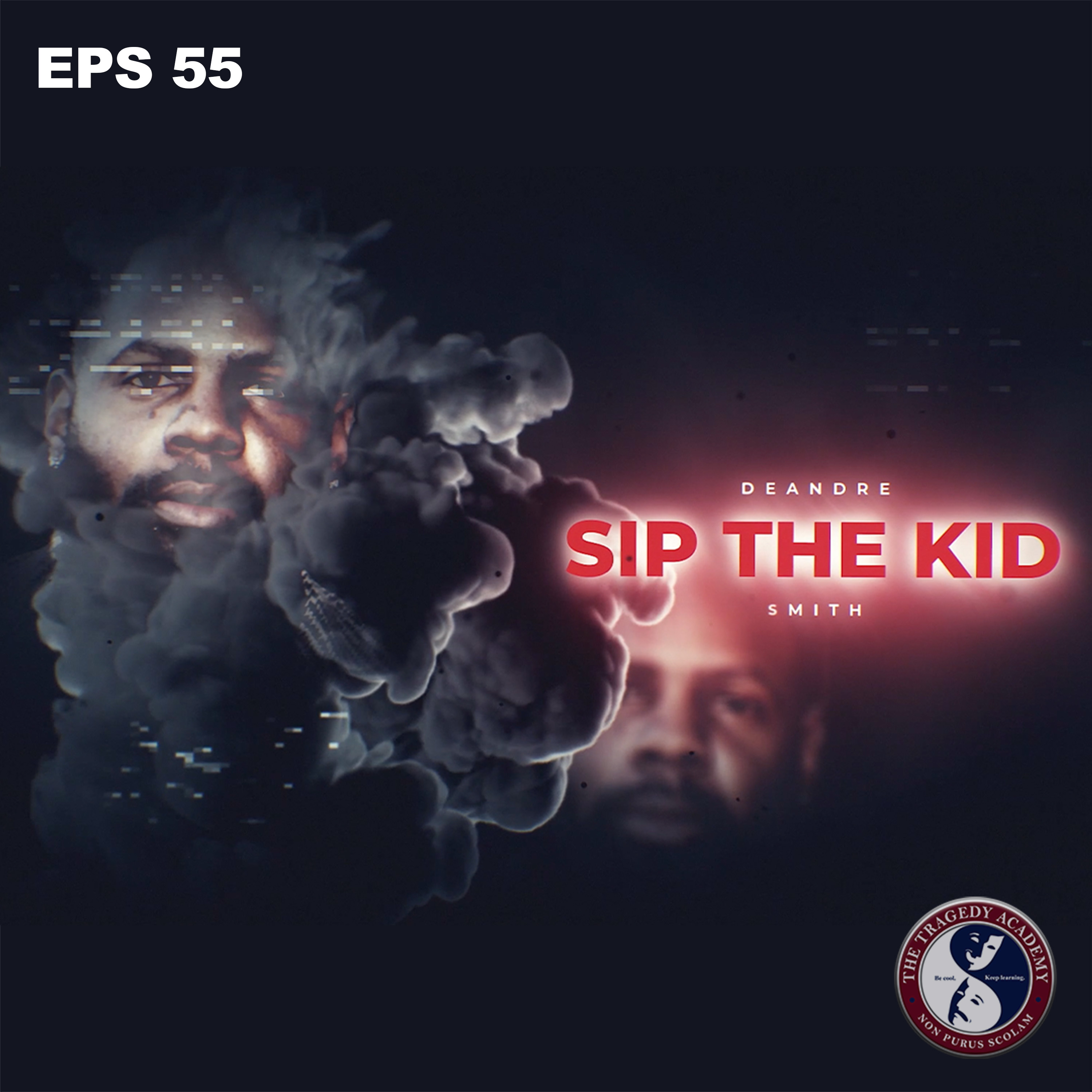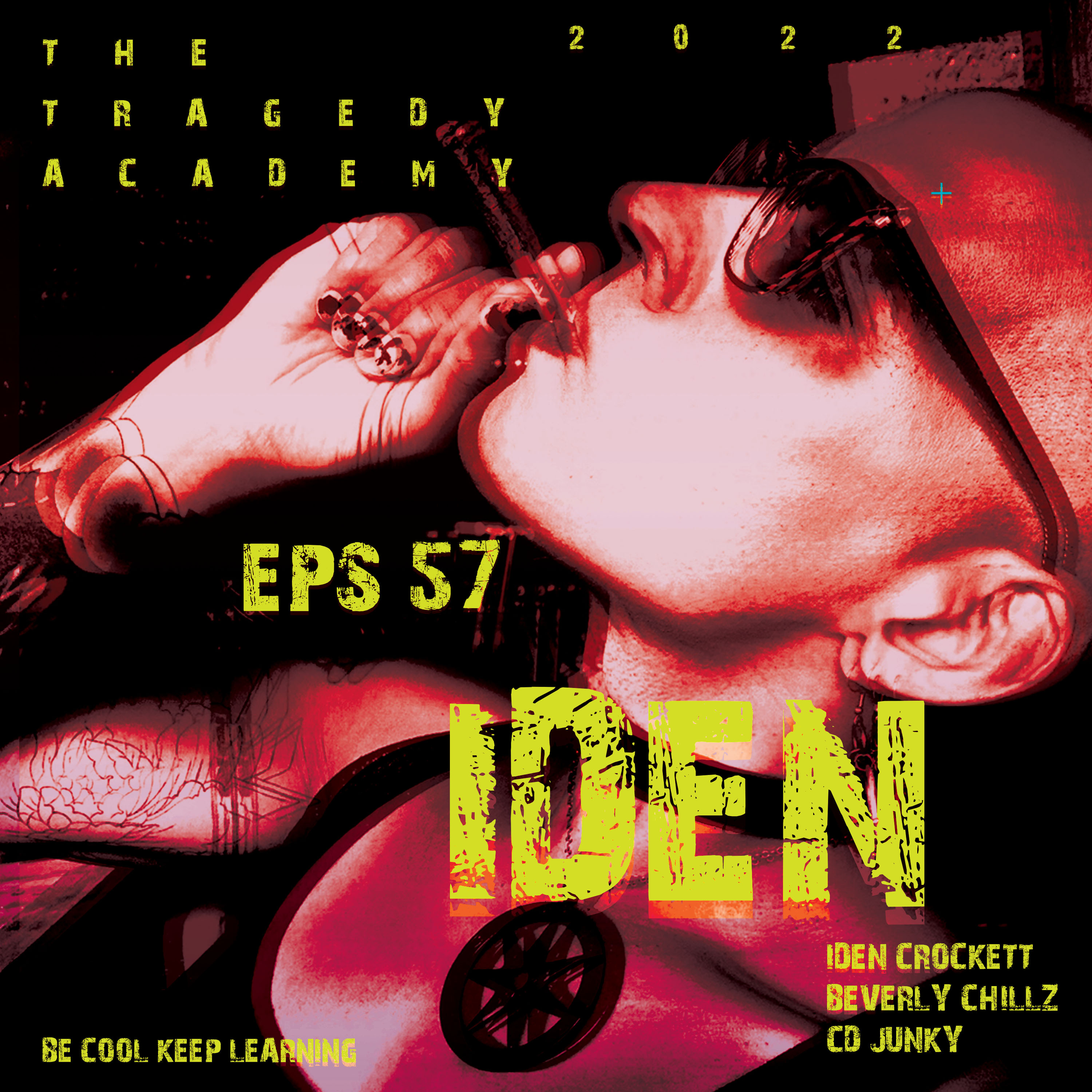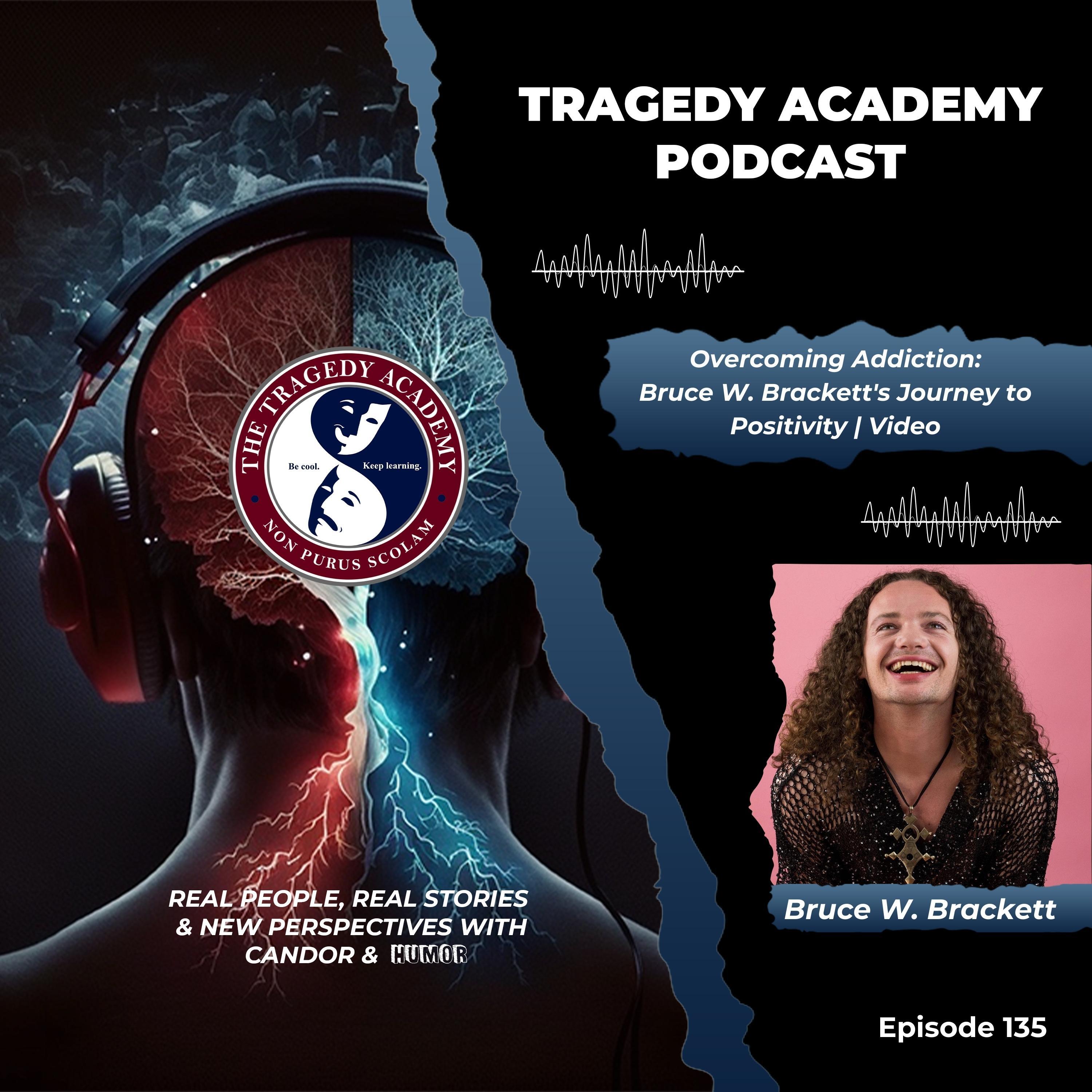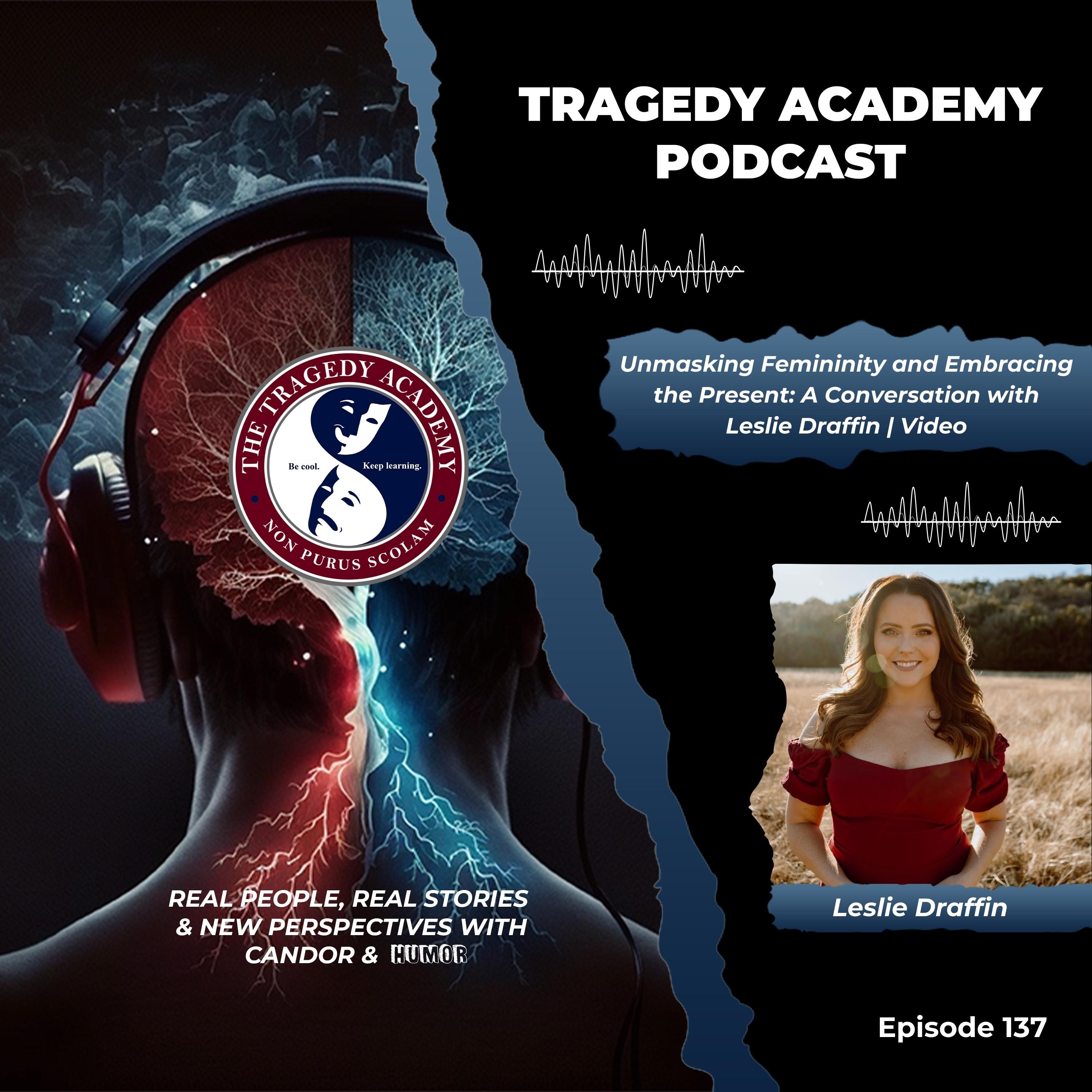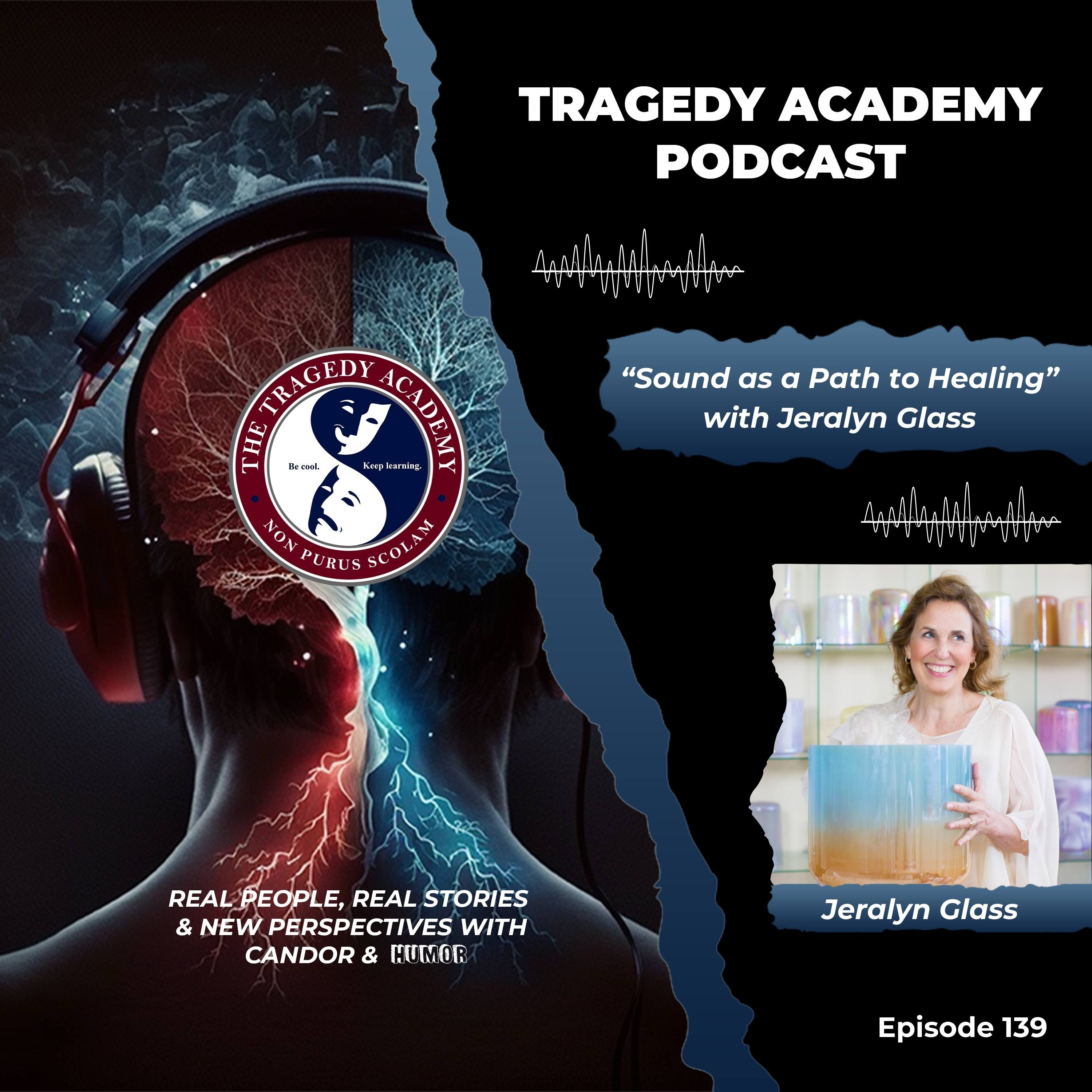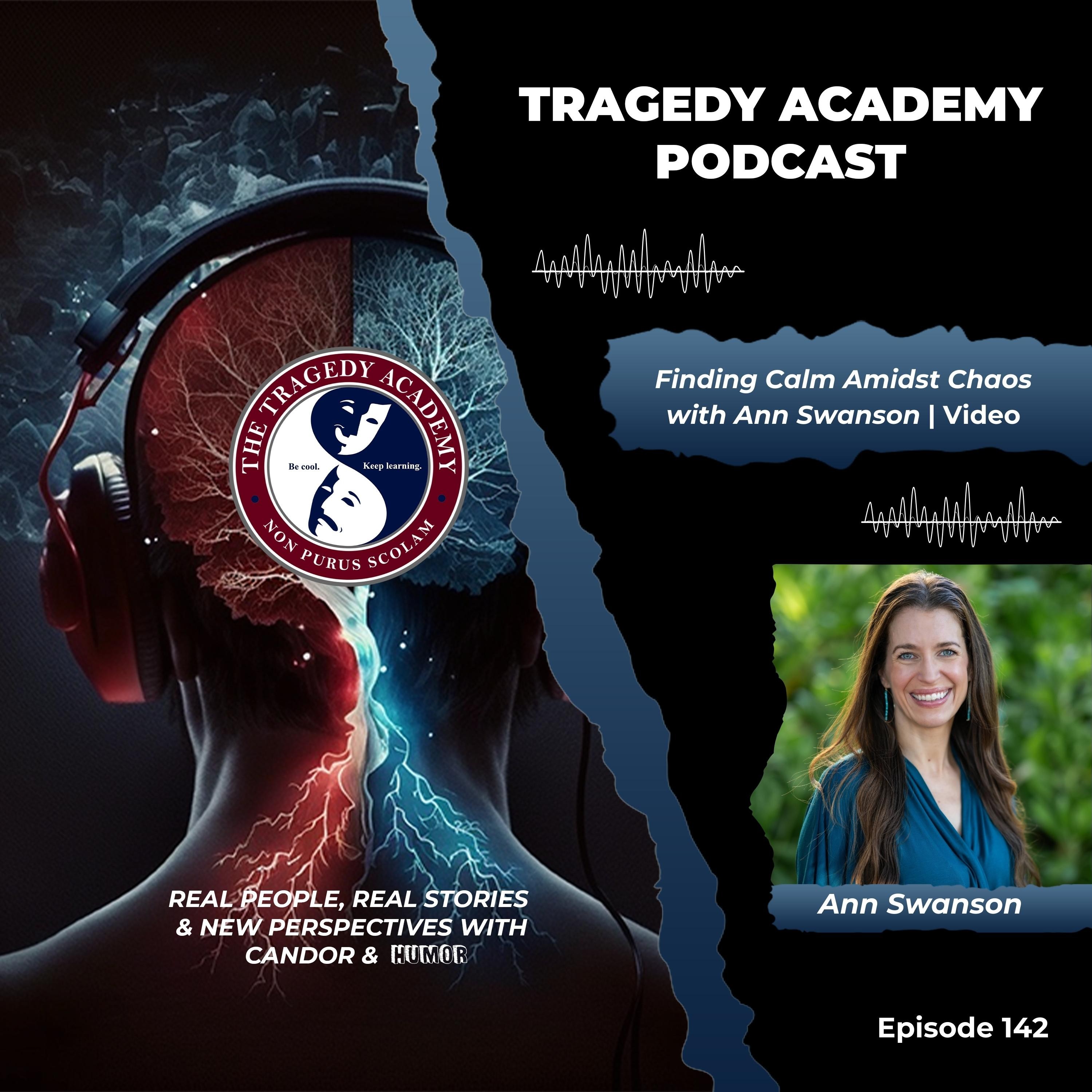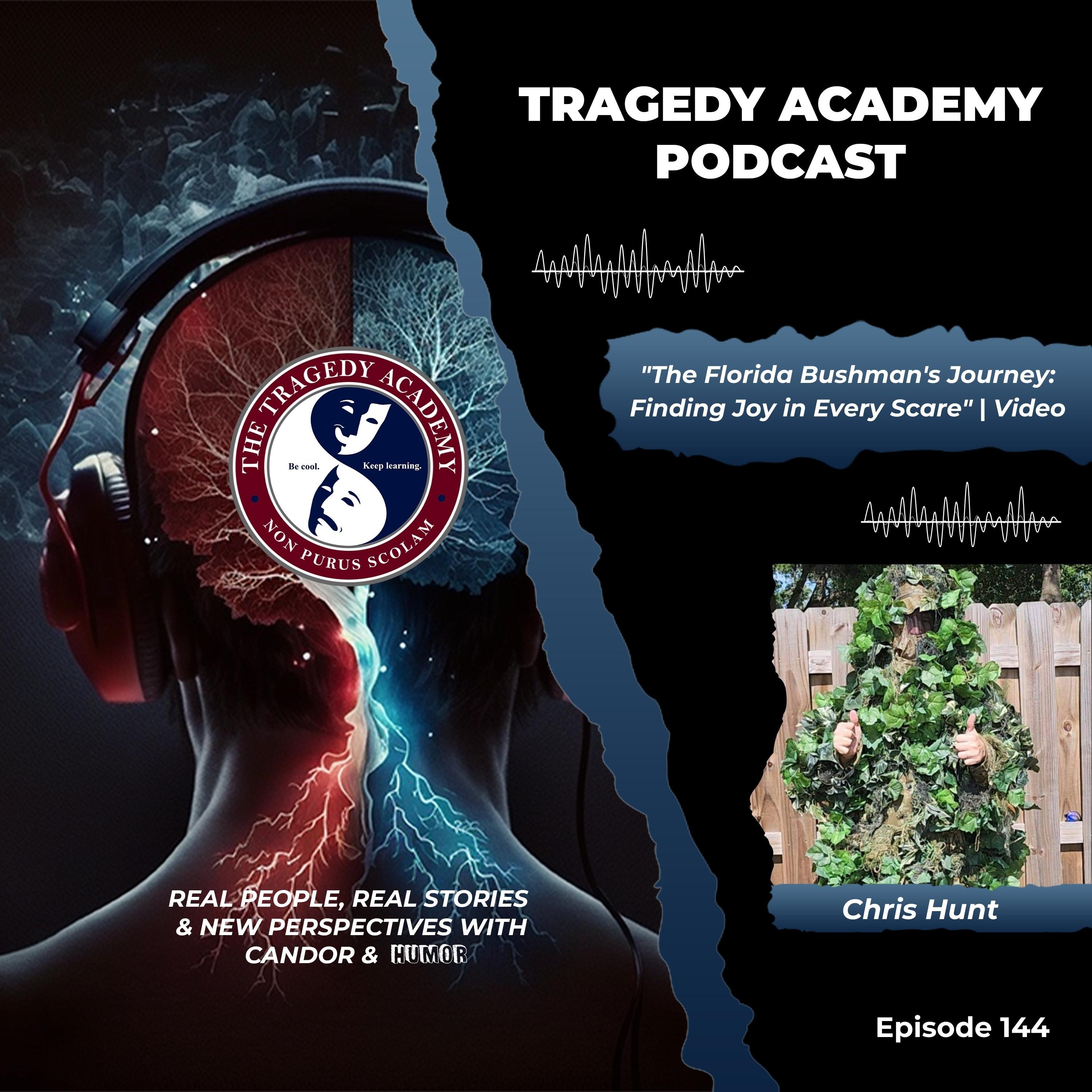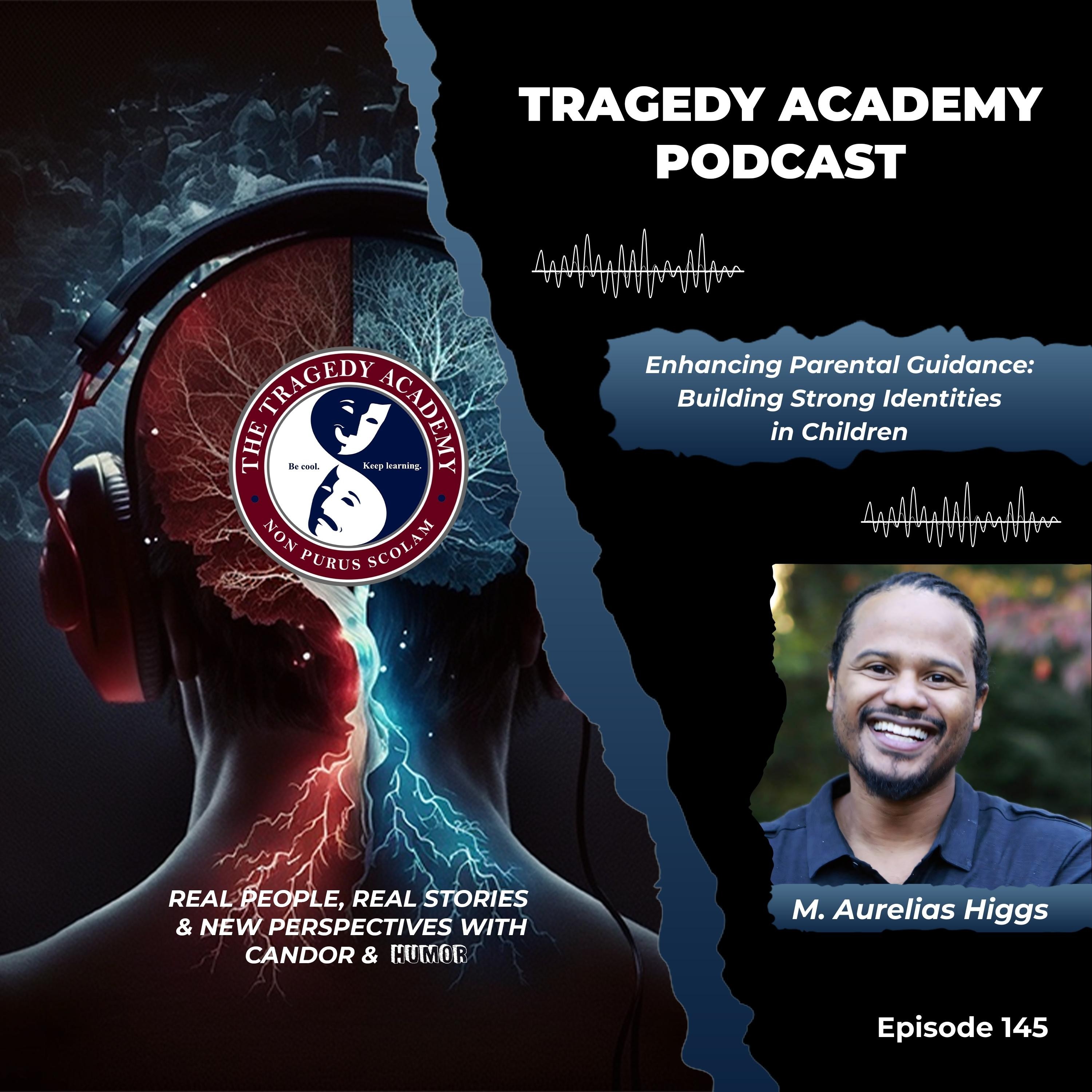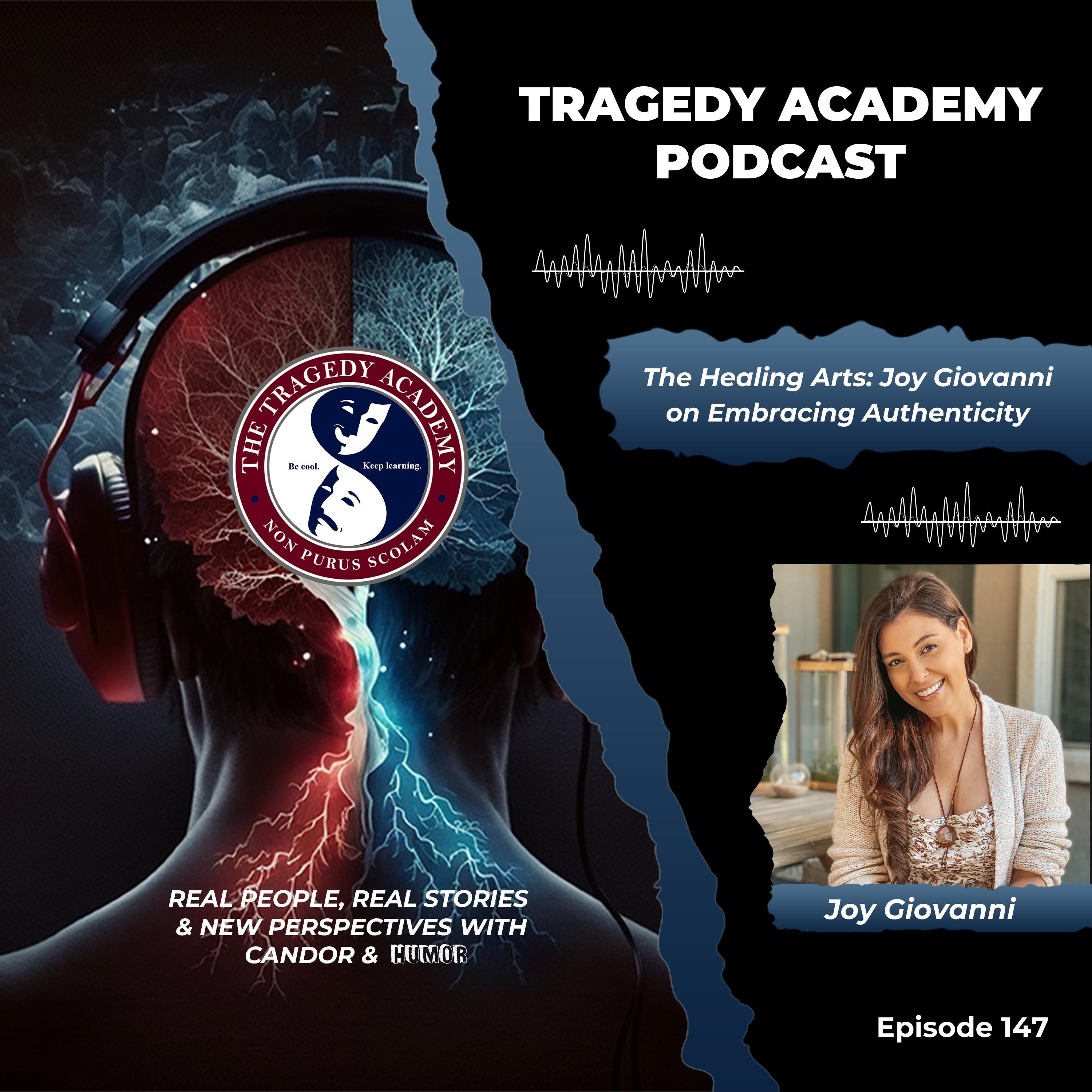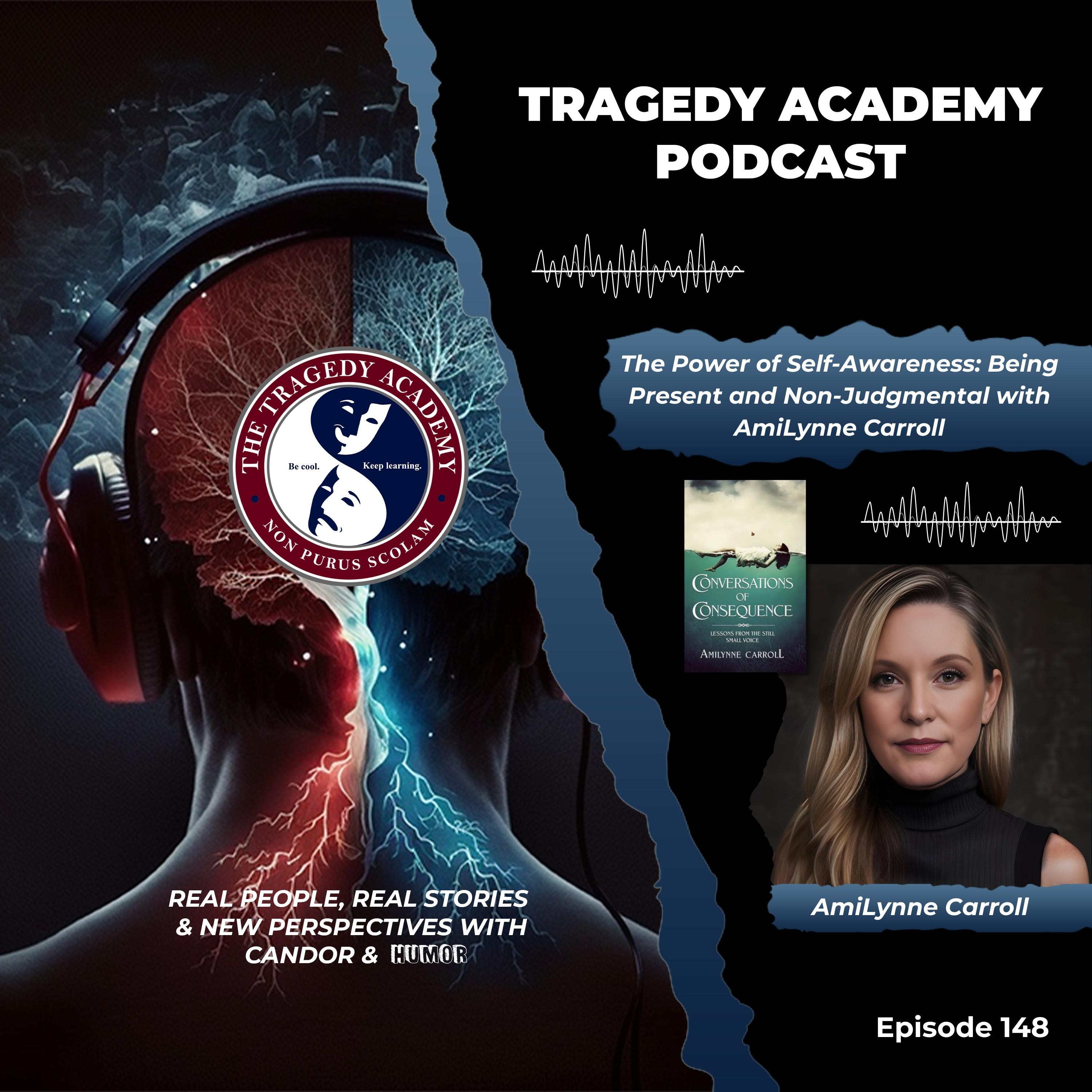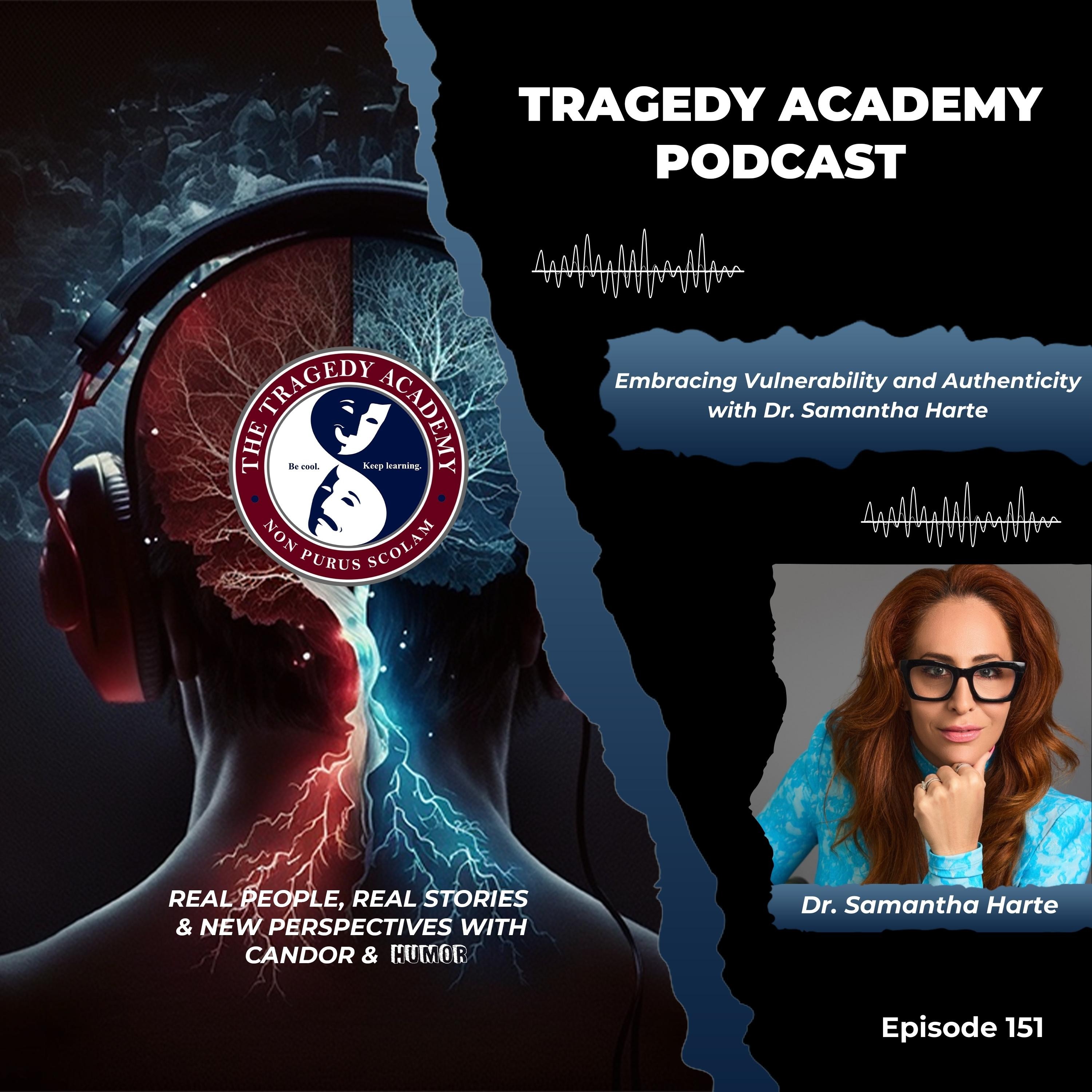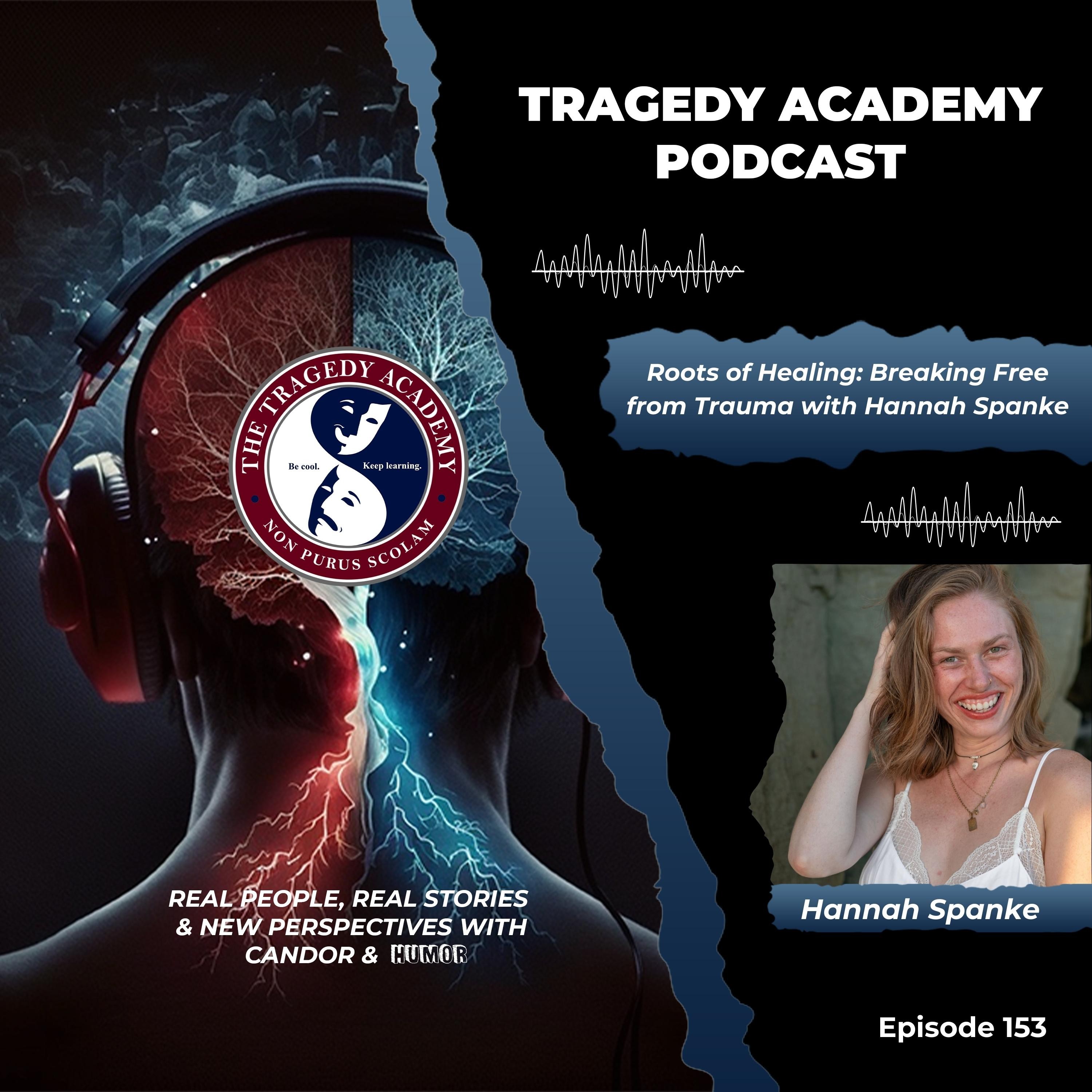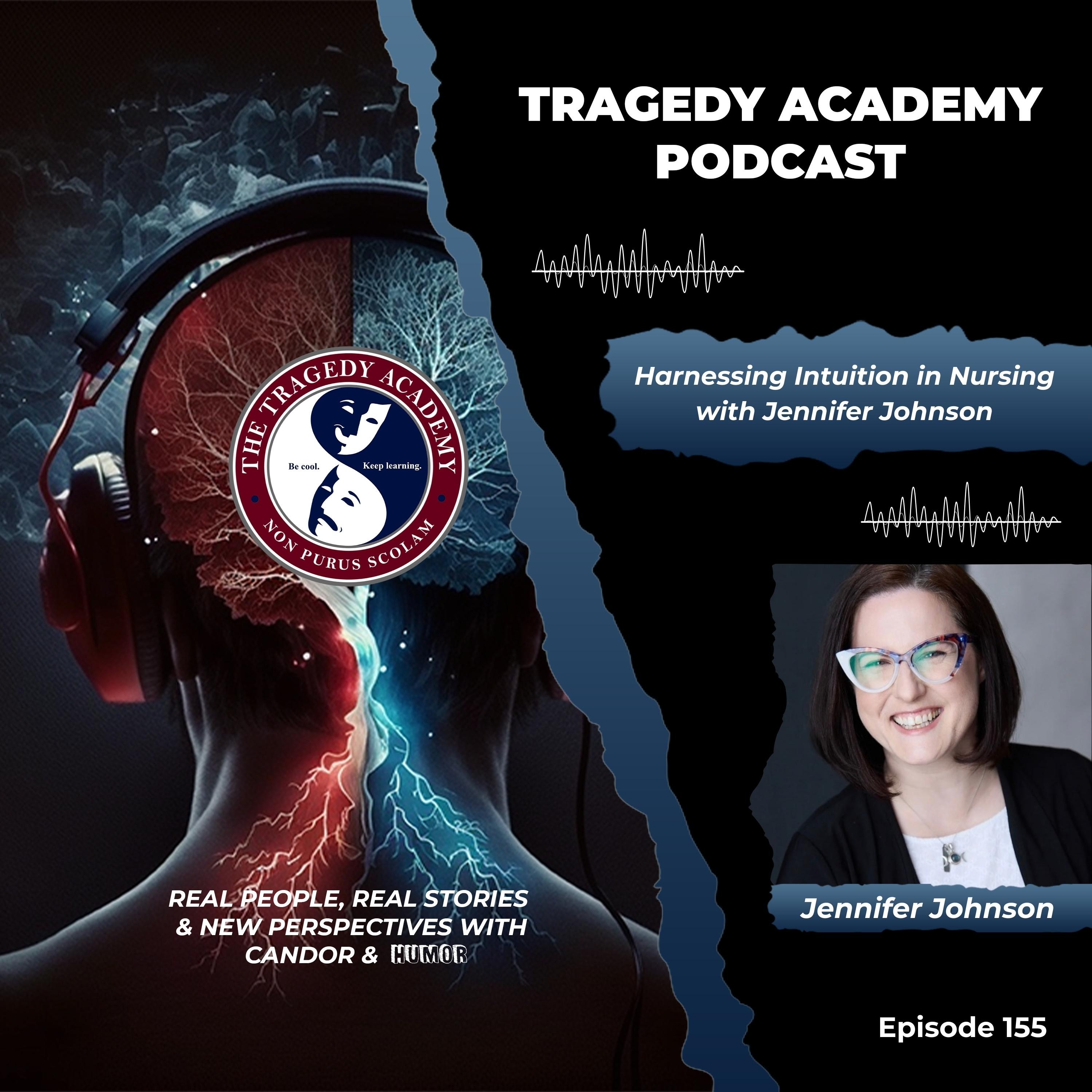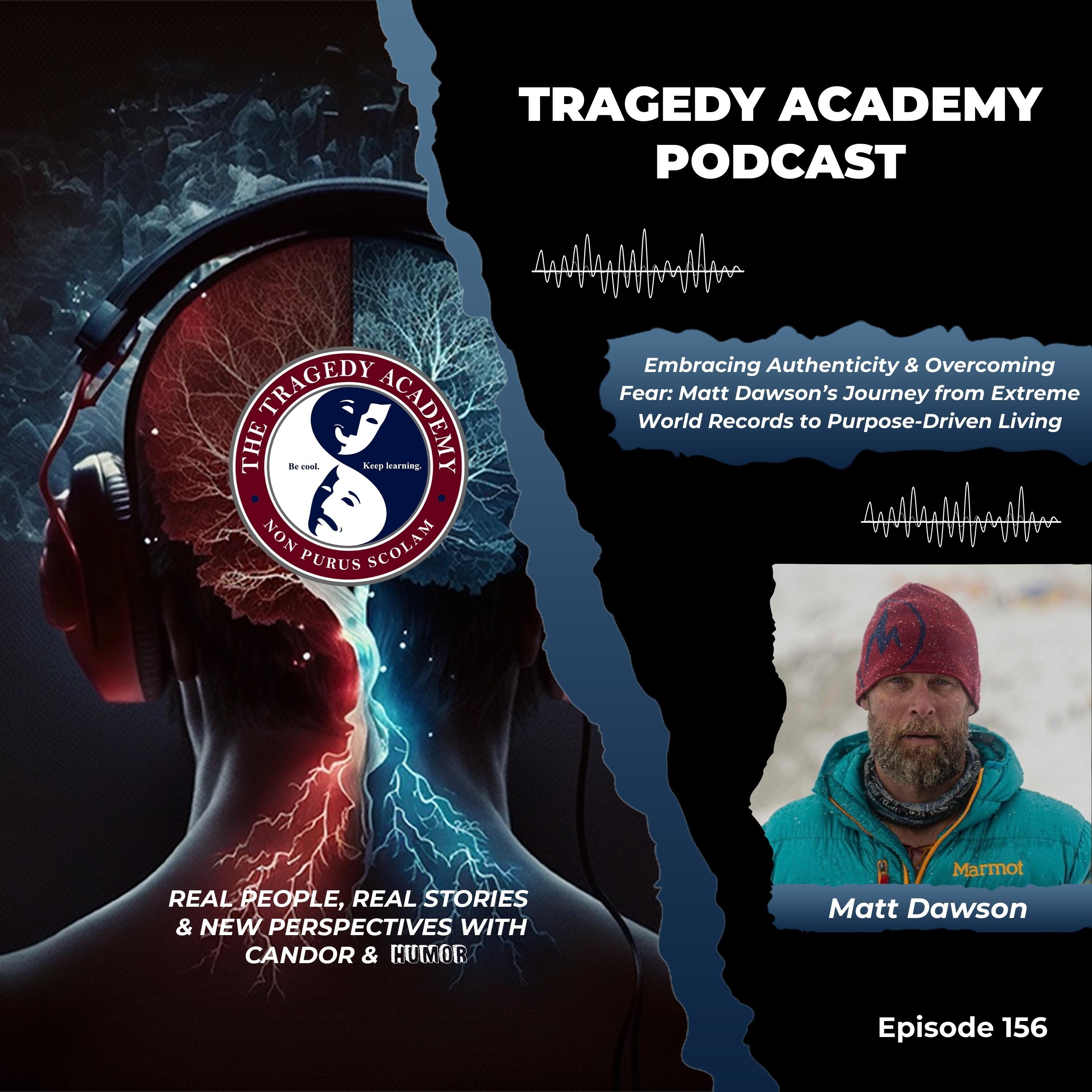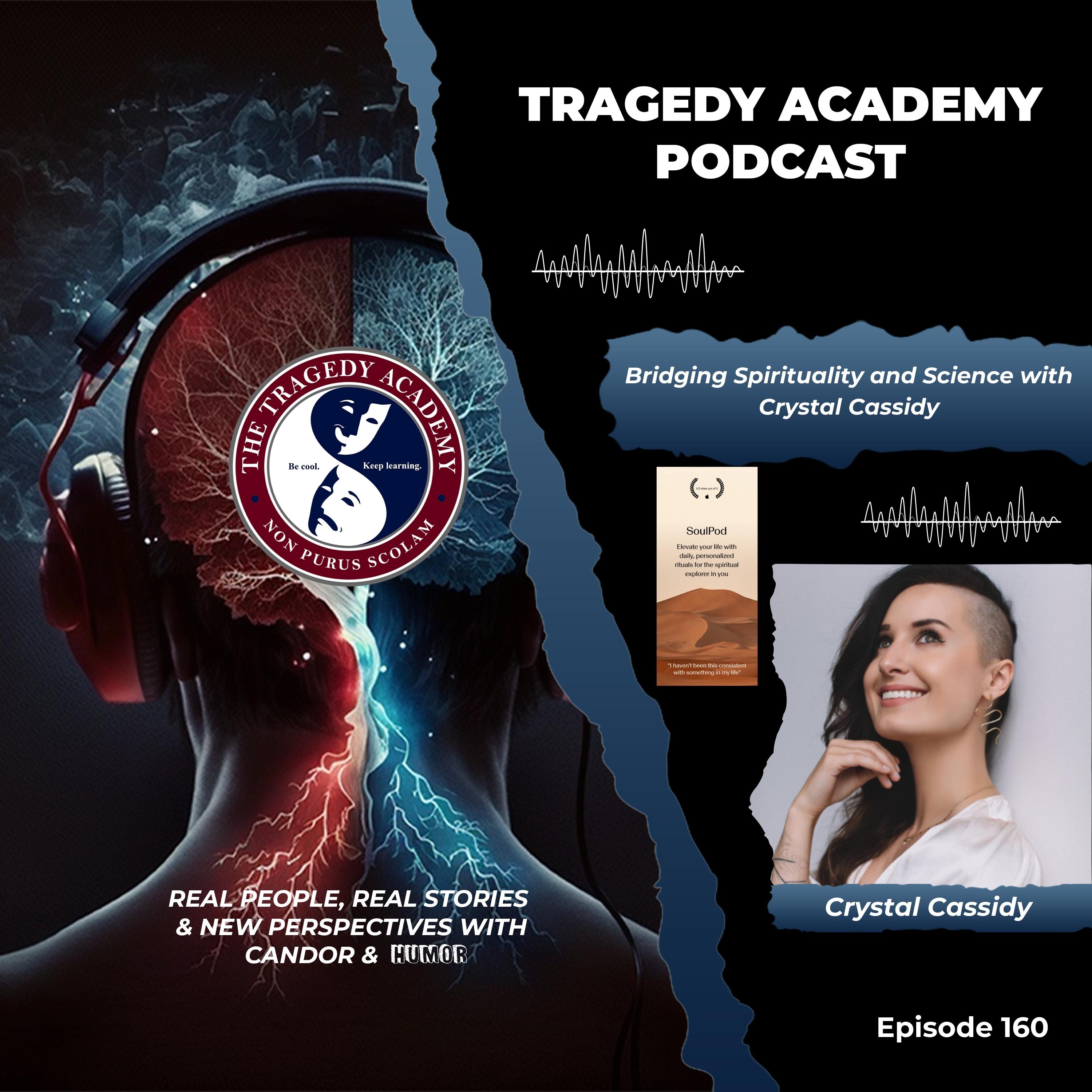Navigating Creativity and Adversity with Stephen V. Stone | Video
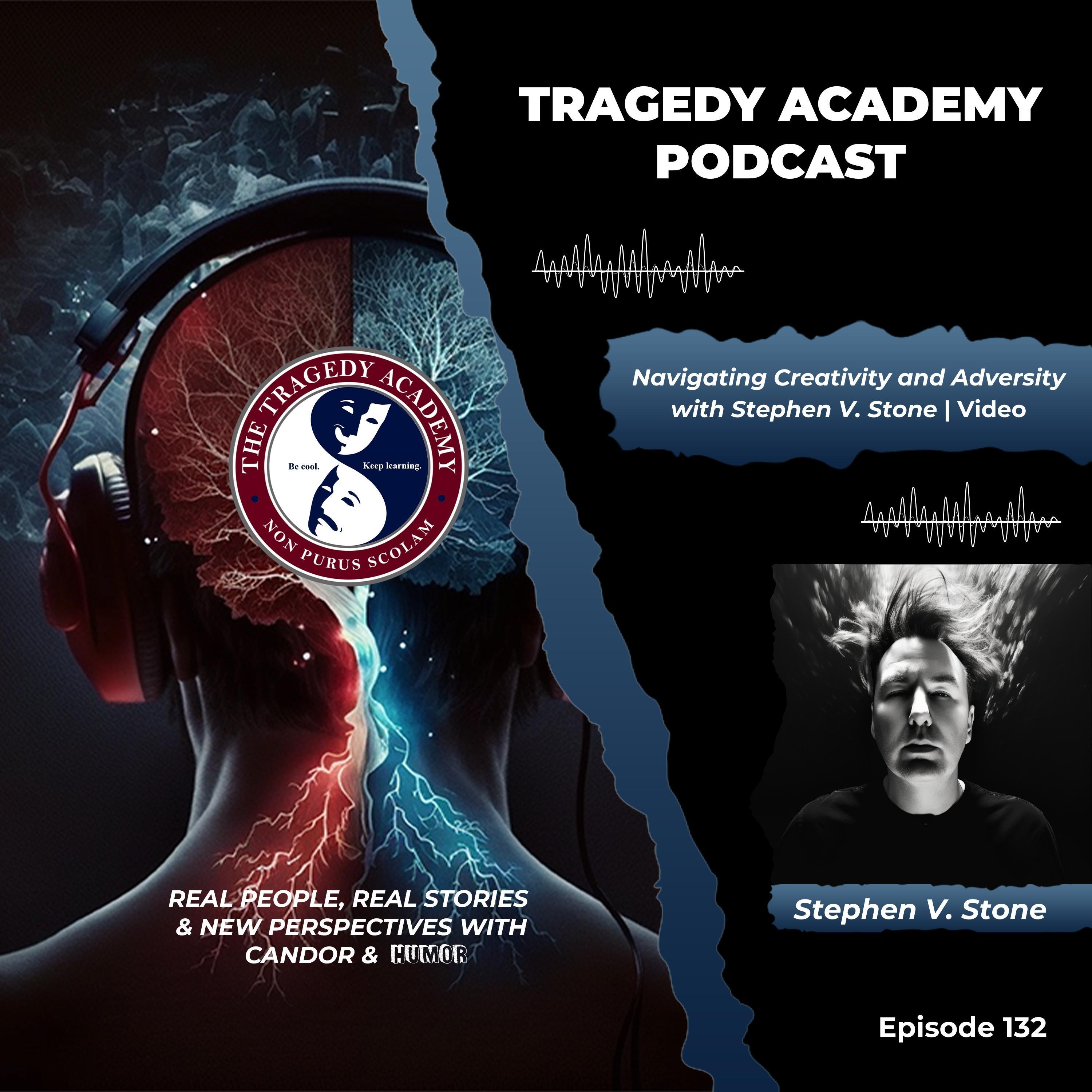
In this episode of The Tragedy Academy Podcast, Jay Hicks and cohost Gary DeFranco speak with Stephen V. Stone. We explore the incredible journey of an award-winning filmmaker who has faced significant personal challenges, including Complex Regional Pain Syndrome, yet continues to innovate and inspire in the realm of filmmaking and beyond. 🎙️
Engaging and enticing verbiage: Stephen V. Stone shares his unique perspective on creativity, adversity, and the resilience required to pursue one's passions against all odds. Despite facing debilitating physical challenges, Stephen's dedication to his craft and ability to adapt and innovate led him to create remarkable works such as "In Saturn's Rings." This episode dives deep into Stephen's journey from battling Complex Regional Pain Syndrome to reinventing himself as a filmmaker and teacher, offering listeners insights into overcoming obstacles and finding new avenues for artistic expression. Join us as we discuss the power of limitations as a catalyst for creativity, the significance of embracing one's vulnerabilities, and the impact of technology in democratizing the arts. 🚀✨🎬
Key Takeaways:
🌌 [00:22:36] Stephen's journey through the creation of "In Saturn's Rings" highlighting the power of collaboration and the transformative impact of perseverance and passion on both his projects and the lives of those involved.
🎓 [00:47:14] The reevaluation of one's capabilities in the face of adversity, leading to newfound strengths and opportunities, as Stephen discusses his foray into screenwriting and teaching.
🎨 [00:50:59] The role of limitations in fostering creativity, with Stephen sharing his approach to filmmaking that accommodates his disability but does not diminish his ability to create impactful work.
🌍 [00:51:08] The pandemic is a period of reflection and opportunity, challenging individuals to rediscover their potential and pursue previously sidelined passions.
💡 [00:53:23] The importance of embracing one's unique story and experiences to fuel authentic and resonant art, as Stephen reflects on his transition from facing physical challenges to harnessing them as a source of creative empowerment.
Guest Bio:
Stephen V. Stone is an award-winning filmmaker celebrated for his pioneering work in photo animation and innovative filmmaking approach. Despite a diagnosis of Complex Regional Pain Syndrome, Stone has not only continued to contribute significantly to the film industry but has also used his challenges as a catalyst for creativity and teaching. His notable project, "In Saturn's Rings," showcases his exceptional talent and dedication to his craft, garnering global attention and inspiring others to overcome obstacles.
Remember to subscribe to The Tragedy Academy Podcast on your favorite platform, leave a review, and share this episode with friends and family. Dive deeper into the human experience with us, exploring stories of resilience, creativity, and triumph. 🎧💬 Be cool and keep learning. 🌟
To learn more about Stephen V. Stone and his incredible work, visit his website, follow him on social media, and check out "In Saturn's Rings" and his other projects. Let Stephen's journey inspire you to push beyond your limitations and explore new creative horizons. 🌠📽️
Thank you for tuning in to another episode of The Tragedy Academy Podcast. Stephen V. Stone's story is a powerful reminder that adversity can be a source of profound creativity and growth. Join us next week for more inspiring conversations that bridge societal divides and celebrate the human spirit. Remember, be cool and keep learning. 🌱🎓
Dive deep into honest, unfiltered conversations about life and the silver linings within our daily challenges. We explore subjects from philosophy to comedy, ensuring every episode gives you insight and a smile.
📲 Connect with Us! Explore more about The Tragedy Academy: The Tragedy Academy Website
🌟 Support and Grow With Us 🌟
🎧 Podcasting Made Easy: Build your stunning podcast website with PodPage. Take your recording to the next level with Riverside.fm.
👕 Get the Gear Loved Jay's t-shirt from the latest episode? Grab yours at INTO THE AM.
📘 Expand Your Mind Dive into our recommended reads at our Bookshop.
✅ Stay Updated – Subscribe! Subscribe to our YouTube Channel and never miss an episode.
📱 Follow Us on Social Media
- Instagram: @thetragedyacademypodcast
- Facebook: The Tragedy Academy Podcast
- Twitter: @Tragedy_Academy
- TikTok: @thetragedyacademy
💖 Support The Tragedy Academy Your support helps us keep bringing meaningful content. Consider donating through PayPal or BuyMeACoffee.
The Tragedy Academy is a show created to bridge societal divides in a judgment-free zone using candor and humor.
Be cool. Keep Learning.
[00:00:00] Gary: Yeah, we'll fix it in post.
[00:00:01] Jay: fix it in post. That's what we do with everything,
[00:00:04] Gary: I just had to get that out early.
[00:00:05] Stephen: Sure.
[00:00:07] Jay: Stephen, I did do something, today that. what's the word I'm looking for? You inspired me to check out something I had never seen, and that was 2001, a space odyssey I had never watched. I grew up in the middle of a hillbilly town in Florida So it wasn't necessarily in the stack of VCR tapes that it wasn't. in the days of VHS, it would have been one of those extended play VHSs, because it wouldn't have fit on a
[00:00:38] Stephen: normal, SP runtime.
[00:00:40] Stephen: That's how old we are.
[00:00:42] Jay: So it was definitely something that I had no idea what it was until I actually saw it, and it was super captivating. And before I forget, welcome to the Tragedy Academy, a show created to bridge societal divides in a judgment-free zone using candor and humor. My name is [00:01:00] J Gary. How are you doing today, buddy?
[00:01:02] Gary: I'm doing great. I'm excited for this episode.
[00:01:06] Jay: Absolutely. I am as well. That voice that you heard is Steven V. Stone. He created Inside Saturn's Rings astrogenesis post-production, Which is in post-production, Which he did on you did let's see upload, and he did it all on an iPhone 11 You, Which was super cool. I want to ask about that one because I feel like there's a whole community that probably got super triggered for a moment there. So I was like, this is dope, and it's all about interpretation. There was so many ways you could interpret it, and I was like, oh, I'm going with, I'm going with this direction. But then Lunatic back in 2003, and then, Someday Saturn?
[00:01:47] Stephen: It was just, someday.
[00:01:49] Jay: Just Someday, okay. And then, that was in 2012.
[00:01:53] Jay: Man, what an amazing background you [00:02:00] have.
[00:02:00] Stephen: Thank you. I'm sure you guys can relate. There are things that people like to do, and there are things that you have to do. And filmmaking is just that thing. I tried not to do it at one point in my life, but nope, this is what I have to do.
[00:02:17] Jay: I love that. Why don't you tell us a little bit about who you are and why you came to the Tragedy Academy? then we'll just go from there.
[00:02:23] Stephen: Sure. today, I'm a filmmaker reinventing myself after being disabled with something called Complex Regional Pain Syndrome. The best way to summarize it is the lowest part of the journey. which was, it took eight years to get diagnosed after years of misdiagnosis. I
[00:02:52] Jay: How long did you sit in the fibromyalgia bucket?
[00:02:55] Stephen: was there for, I don't know, six [00:03:00] months.
[00:03:00] Jay: Yeah,
[00:03:00] Stephen: I probably should have been there even longer cause that's at least in the ballpark.
[00:03:05] Jay: correct. There's a lot that's why I asked I'm like because generally you're either left there or you get blessed with a diagnosis It gives you some kind of understanding for what you have going on So I'm not trying to hijack this but there's a lot behind those types of diagnoses, especially the invisible
[00:03:20] Stephen: yeah, but the primary diagnosis for a while was, just power through it, man, after surgery, you have pain even, but so that's a whole nother story. And then the last neurologist before diagnosis was convinced I just needed spinal manipulation. Via a physical therapist, but that'll fix your right up.
[00:03:47] Gary: Crack your back. You'd Crack my back a couple of times and you'll be good to
[00:03:51] Stephen: go.
[00:03:52] Jay: Those videos scare the bejesus out of me like on social media when I see them snatching someone's head off their [00:04:00] shoulders I'm, like I'm not doing it
[00:04:02] Stephen: This was a top neurologist in the area. This was not a chiropractor. This was the top neurologist. Fortunately, at that point, I was starting to trust my gut, but when I got the diagnosis, I went to my primary care doctor at the time, right?
[00:04:21] Stephen: Today was at my new primary care doctor because this old primary care doctor and bear in mind if you google CRPSYou'll probably see that it has this casual name the suicide disease And what she told me she said I've looked up this online and I'm going to suggest That it was she didn't use the word suggest.
[00:04:43] Stephen: She says what I want you to do is go home and google Stuffing envelopes at home because I believe this is going to be the rest of your life, like on your couch
[00:04:56] Stephen: That was that was the that was the [00:05:00] non Funny low. That was a bad day, but I didn't tell anybody about that for
[00:05:07] Stephen: because it was
[00:05:07] Jay: who sets a benchmark for somebody in a situation where they've received a diagnosis and they've been trying to get on their feet, And you know, move forward? Who sets a benchmark as you can only stuff envelopes? Who the fuck gets off the couch for that? If that's all I get, why the hell would I even move?
[00:05:25] Jay: That's a horrible thing to do, somebody. It's a limitation mentally up front.
[00:05:28] Stephen: Yep. But you know the blessing is, my wife is from detroit. She's had a congenital birth defect from birth And so she's been a great Role model and example to me
[00:05:41] Stephen: and she's
[00:05:42] Jay: you got to suck it up
[00:05:43] Stephen: She grew up in inner-city Detroit. So it's no, I hold on a second Okay, that was just you'll have to fix that one in
[00:05:56] Stephen: post too.
[00:05:56] Gary: Haha.
[00:05:57] Jay: Nah, it's called the [00:06:00] tragedy academy. It's baked in
[00:06:01] Stephen: She's from Detroit, and that was such a great role model for me. And when I got home, I had a bleak 24 48 hours. You And it's it's no. One, whatever I do, it has to be film. If I'm going to stuff anything in a home, it's going to be film; it's going to be boxes of movies to collectors.
[00:06:30] Stephen: let's, get, but it's it's not a question of what I can't do. Cause I can make a list all day long of what I can't do. And that's just going to get long and boring, probably give me a carpool tunnel in my right hand. But let's make a list of what I can do. That's an interesting list.
[00:06:44] Stephen: And
[00:06:44] Stephen: the first
[00:06:45] Jay: and watch it grow.
[00:06:46] Stephen: And then it was like, I can write, and it's what I have never studied formally? I've never studied screenwriting formally. If I can write, and I've been doing this for a long time, I can teach. And then that, and as you said, [00:07:00] I've been watching that list grow and grow.
[00:07:02] Stephen: And one of the things that I had on the, that I would have put on the cat list, I can't make films. That's off the tape. But. A year later, I made a short sitting on my couch. And the thing is, I love, there's, my mantra now is really distilled down to, my favorite quote from Orson Welles, who said, the enemy of art is the absence of limitations. So it's and I've noticed this going back to school and attacking my art. It's if you're in great health and your life is good and you got plenty of money, I got a leg up on you literally because I got a whole bunch more limitations than you, which really fires my creativity and it does actually work.
[00:07:51] Stephen: It
[00:07:51] Stephen: just.
[00:07:51] Jay: Don't tell me what I can't do.
[00:07:53] Stephen: Don't tell me what I can do because immediately The hu the human soul is wired when I can't [00:08:00] Then I'm going to figure out a way that I can
[00:08:02] Stephen: and it's going to be a more creative, more personal, more authentic can than if I On Easy Street, it's like that it's George Lucas making Star Wars when everybody said you can't do this.
[00:08:16] Stephen: We don't know what it is Versus making the prequels when it's like I can write myself a blank check
[00:08:22] Jay: It's an amazing way to look at it. And I love the fact that you're taking those winds of hate and limitations and all those things. And rather than being blown out, your flame has not gone out. Your flame actually goes brighter. Like when you blow on embers, right? And that's what it makes me think of.
[00:08:45] Jay: A lot of people don't make that pivotal change in those moments. They tend to succumb to, those hateful words and those limitations and the things that are being imposed on them because other people don't want to see them succeed because that means they [00:09:00] have to get up themselves. But that's a whole other
[00:09:02] Stephen: It is but
[00:09:04] Jay: And I appreciate that you did
[00:09:06] Stephen: yeah, and I
[00:09:06] Stephen: think it's like you take that part of yourself. That's the stubborn Petulant child, but I don't because I never like to go to bed early. I didn't like to eat my vegetables That is the like, I'm not gonna I'm not gonna take this as hand, you hand me this You know, for a while, even thought was changing my business name to the lemonade factory like We're not just we're just not making We're serious about making lemonade from lemons.
[00:09:36] Stephen: It's, not just the casual one day we're going to do that. It's this is what we do now.
[00:09:41] Gary: Yeah.
[00:09:41] Jay: this stance.
[00:09:42] Gary: I love the quote. That's my life, and I've worked on 10 million TV shows where we have pretty much everything. Amen. Nothing. And the creativity that comes out of the nothing and just brainstorming and what we can put together, and that stuff comes out way [00:10:00] cooler. Most of the time, it's way more fulfilling, and it's like your own personal stamp on it.
[00:10:05] Gary: Not some big lighting company or some big production that comes in and there are 30 people doing everything. It's like you get dirty, build it, and make it yourself. That's way better.
[00:10:17] Stephen: I know. I really feel that. And I know, with that, the feeling that you have after you create out of that space, it's a real, it's, it really feels You have channeled and birthed to something that is a value.
[00:10:34] Jay: I agree with this. If you were to take your right arm and tie it up, you would discover that your left arm was much more capable than you actually knew. You're going to find new features, new ways, and new things that it can do. Over time, you're going to exercise new ways to approach everything, right?
[00:10:51] Jay: And I think that natural, that atrophy on one side creates strength on another if you pay attention.
[00:10:57] Stephen: It. It's absolutely true. And I think [00:11:00] it's it. When we were kids, they would always read the story of Helen Keller, and you go, blah what? Whatever. It's, I think that's the tremendous value of what you guys are doing. 'cause we need to hear lots of people talking about, this is not some little moral fable that's told 'cause so many people in life. basically have their legs kicked out from under them. Emotionally, spiritually, physically, all, of the above. And, it's either what's going to take you down, or it's going to make you something that you never thought you could possibly imagine.
[00:11:40] Jay: get a pamphlet with your diagnosis? That contains limitations for the rest of your life, which is bullshit. You're growing into a mold. I bring up this analogy all the time. It's like growing a watermelon inside of a clear plastic [00:12:00] mold that looks like Frankenstein's head. Right when it's done growing, it comes out that way, but was it ever intended to be that way?
[00:12:07] Jay: Fuck. No, it could be a whole entire watermelon. It doesn't need to be Some shape that was given to them. Don't tell me what I'm gonna fucking become. Let me do it on my own. Just tell me what to watch out for on the way with my new limitation
[00:12:21] Stephen: Yeah. And I think the other big part of that for me was when I was given the kind of like Barry, like the guy, like just power through. But the interesting thing about CRPS Is a lot more women get it than men get the diagnosis. Probably a lot more men are getting it, but they're the ones who just they get taken down
[00:12:52] Stephen: addiction, it up. They're the uncounted because it's. a [00:13:00] there's such strength when you have a diagnosis before I right now I got this great pain management doctor. I have a I'm a cyborg. I'm Bluetooth enabled I have a implant in my spine that has these two leads that For because I was fully disabled.
[00:13:20] Stephen: I was bedridden from the pain And the standard option is we're going to give you a bunch of opioids
[00:13:27] Stephen: And a bunch of Gabapentin Pills
[00:13:30] Jay: don't take that
[00:13:31] Stephen: everything
[00:13:32] Stephen: and then because
[00:13:32] Jay: that shit. It'll give you Parkinson's
[00:13:34] Stephen: you it gives you everything, then we got to give you another whole round of medications because it's all max. So it's the maximum opiate dose or more.
[00:13:42] Stephen: It's a maximum gabapentin dose or more, and then Long-term opioid use makes you more sensitive to pain.
[00:13:51] Stephen: So I got this implant instead And It takes about two-thirds of the way I'm now [00:14:00] partially disabled when I discovered there is When you allow yourself to be vulnerable and
[00:14:09] Jay: Mm.
[00:14:11] Stephen: When it really puts you in touch with what a fragile thing You know what that balance is because one day I was out playing volleyball The next day I was injured in a chain of dominoes that led to this But in there is a different kind of strength that we're not taught especially in the
[00:14:33] Jay: The Western culture.
[00:14:34] Stephen: culture and in the male side of the world. It's like that's not seen as strength To accept that, okay, I have this vulnerability. I have this thing. I can't pretend it's not there, but it's a source of new insight and new strength that I would have never gotten in touch with before. And so now, and the big thing, this big gift that this is [00:15:00] by not trying to like, I'm just going to take a bunch of pills and pretend that it didn't happen to me.
[00:15:04] Stephen: My brain. It is not only unaltered, it's almost sharper because
[00:15:13] Stephen: There'll be a new playground to work in. I call it a playground. I don't call it a cage, a box, or anything like that. It's a new playground. It's got a different sandbox, a different set of swings, a teeter-totter, or whatever. It wasn't on the other, but it's time to play. I always talk about baseline, right?
[00:15:31] Jay: You have to find your baseline for your new normal. Why the fuck get mad at one-third of yourself? That's going to feel that way every day when you wake up, that's like yelling at the sun,
[00:15:42] Jay: right? Just set yourself a fucking baseline and try not to think about that 30 percent as best you can.
[00:15:49] Stephen: And, honestly, that's not easy to do.
[00:15:52] Stephen: It took me, it took me about a
[00:15:53] Jay: I feel you two hip surgeries, four right ankles, three kidneys, and a couple blows to the head by my own [00:16:00] self. So I get, what it is.
[00:16:04] Stephen: exactly. There was about a year when I was just yelling at my leg. Like, why did it yell at the sun, and then you go, okay? And the thing is, I'm on this experimental medication called low dose naltrexone, which is an It's a really powerful anti-inflammatory, it's, and, but it's, and what it does is it, tweaks the endorphin system.
[00:16:33] Stephen: It fools the pain system. But one of the side benefits is that it reduces all inflammation in your system, including the flow of blood to the brain. So you can't take a lot of it because your dreams will be way too vivid, but it does; it literally sharpens the mind.
[00:16:53] Jay: Oh my god, we're gonna have a whole bunch of people asking you where you get
[00:16:56] Jay: those pills here in about
[00:16:57] Gary: who's your
[00:16:58] Gary: guy?
[00:16:59] Jay: sounded [00:17:00] amazing
[00:17:00] Jay: Try new
[00:17:02] Stephen: the other thing that, real low dose, Naltrexone at its original dose, it was some of those accidental discoveries by somebody not looking for it, it was originally given to opioid and,
[00:17:14] Stephen: heroin
[00:17:15] Stephen: addicts.
[00:17:16] Jay: correct. I was gonna say I thought that was an addiction. Medication it also works with alcohol and other things like that
[00:17:23] Stephen: but so I'm getting the micro dose version of it because some researchers somewhere stumbled. If you microdose, it has these anti-inflammatory properties, and micro-dosing also just gently reduces cravings. Because I have some balance issues, it's not great for me to drink alcohol because I have a dead nerve in my right leg or whatever.
[00:17:47] Stephen: In fact, my doctor last week said, so how are you drinking any alcohol? I was like, oh, I forgot about alcohol. It sounds so weird but it just doesn't cross my mind anymore. So it's like [00:18:00] there's all these silver linings
[00:18:03] Jay: Leave your system because those are ways to satiate a pain inside. They're not actual things that need Fulfillment; it's a fear response.
[00:18:15] Stephen: Yeah, and I'm back in. I dropped out of film school back in 1991 and never got a degree. And when I decided I wanted to teach, I decided to go back to school. I finished my undergraduate studies, and I'm going to graduate with a master's degree in screenwriting in May.
[00:18:37] Stephen: It is pretty unusual for someone with CRPS to even attempt to go back to school. So that's a huge milestone for me. But I've noticed, because I was worried, I'm the old guy with all these young kids who are gonna have a
[00:18:53] Stephen: sharp
[00:18:53] Jay: I have no idea what my age is. No matter what room I'm in I'm an idiot, and I embrace it now
[00:18:59] Stephen: the [00:19:00] thing is, it's I've noticed there's just a little sharpness. I have a little quickness that I thought I would I thought it'd be completely the opposite side. It's, and then you got all that you've got all this experience I've
[00:19:12] Stephen: got a have wisdom tell I've
[00:19:16] Stephen: seen it
[00:19:17] Jay: You have pain to put on a screen.
[00:19:19] Jay: junk. No soul
[00:19:23] Stephen: that's the thing about that's the thing about that's the fun part of this is Drama can be self-indulgent. When it's behind the camera, that's my analogy, but you put it in front.
[00:19:36] Stephen: It's magic.
[00:19:38] Stephen: So it's Gary, you've probably got a ton to weigh in on
[00:19:41] Jay: this as
[00:19:41] Jay: well,
[00:19:42] Gary: it's amazing for one, the Bluetooth thing. I pride myself in being able to hack into Bluetooth devices all over can hack into
[00:19:50] Gary: like, all of a sudden it's gonna be
[00:19:51] Jay: what's your favorite music?
[00:19:53] Gary: Ah, yeah, it's going to play Young Jeezy's My President is Black on repeat. [00:20:00] Ehehehehehehehehehehe.
[00:20:01] Jay: Explain that in the grocery store.
[00:20:02] Gary: Yeah, that was a,
[00:20:04] Stephen: and the wild thing is the controller I have for my device is literally like a 10-year-old iPod
[00:20:10] Stephen: touch.
[00:20:11] Gary: Nice.
[00:20:12] Stephen: And it has a, it has, the only hack protection is you have to be about three inches away to make the Bluetooth
[00:20:19] Stephen: pairing.
[00:20:20] Gary: You're like, what are you doing? Get away from me.
[00:20:22] Jay: I'm trying to pair with you. Hold still.
[00:20:25] Stephen: it was a childhood, it was a childhood dream to be a cyborg. I get to be a cyborg.
[00:20:32] Jay: Yeah, what is it? I remember the first time because you love science I do. Right. I wasn't exposed to science fiction until I joined the army, and I found myself reading when I was in the middle of nowhere doing nothing, in the field for training and stuff like that. And I stumbled across Dean Koontz and I fell in love with his version of Frankenstein.[00:21:00]
[00:21:00] Jay: And it was all about this cyborg, bizarre, futuristic, Combination of spiritual and technological and all these things, which I believe that's what evolution is because we're constantly saying we're not part of the group; we refer to ourselves as something that's looking at nature, like no jackass your nature, like plastic is your fucking shit.
[00:21:25] Jay: that's all it is. It's a byproduct of you, like everything else. But I loved how they portrayed that story in there, and I saw it in some of the stuff you're doing. I'd love to take a little bit of a turn and talk about some of the film work you're doing and the stuff you have coming up because, my God, dude, you can see the pain in the art. When somebody's sitting there dedicating themselves to something so hard, you can see that you have painstakingly put layers together like [00:22:00] I've never seen.
[00:22:02] Stephen: know,
[00:22:02] Jay: about Saturn.
[00:22:03] Stephen: Yeah, so in Saturn's rings, that was something that started when I was a healthy, able-bodied person And ended when I was undiagnosed, just hanging on with my fingernails. When I finished that in 2018, you know what we were talking about earlier, Jay. You know when you do something out of that place of calling and you don't have unlimited resources, you know that was I got it.
[00:22:36] Stephen: I got into that thinking, well, this might take me three or four years, never dreaming. It would take 15 and If it hadn't taken 15, I wouldn't have met the hundred volunteers around the world that worked on that with me. And it ended up making huge changes in their lives that a guy that would was just going to donate the [00:23:00] early website for the project.
[00:23:02] Stephen: He was so inspired by this process that he quit his career and is now a leading painter in Spain. Then, a pharmaceutical chemist who graduated from MIT dreamed of doing something with his life, and now he's a leading fellow at the Jet Propulsion Lab studying the surface of the moon Titan.
[00:23:29] Gary: Jesus.
[00:23:30] Stephen: it's that's what happens when
[00:23:33] Stephen: you shift.
[00:23:34] Jay: inspire through authenticity. When you are your true self, and you stand up and accept yourself for who you are without those limitations, there's a byproduct. You shine so brightly that other people can take cues from you. They can step out of their comfort zone. They can be themselves in your presence because you no longer hate yourself.
[00:23:57] Jay: We don't hate ourselves. [00:24:00] People love us more, and they take cues from us. We think that we need to impress them. But you need to give them the impression that you love yourself, and then they'll follow suit. They'll light their fire, and the next person will. And you end up with people doing some of the most amazing things on the planet.
[00:24:16] Jay: That's why I love this show. You become a lighthouse. A lighthouse does its job. It stands up and acts like a lighthouse. It was made that way. It shines its light, and people will always take their cues from it.
[00:24:28] Stephen: That's a great analogy because, You know, when Autumn was talking to me about this show, I had an instant connection with her because we both had been on
[00:24:41] Stephen: those
[00:24:41] Jay: Amazing woman.
[00:24:42] Stephen: And yeah, she is amazing, and we've just she's already become a huge part of my life on a personal level at a professional level, and when she was telling me about this, it's Oh, I mean I'm just so honored to be here first again I have to say that and This [00:25:00] kind of work to me is you always want to feel like what you're doing is making the world a better place.
[00:25:09] Stephen: That's our, I don't know if Nick Cave, the musician, but he was, I was reading a thing where he was talking about art is not about inspiration, it's our jobs.
[00:25:22] Jay: Thank you.
[00:25:23] Stephen: someone, a doctor or firefighter, whatever, they don't go, am I inspired to fight fires today? It's no, this is my job.
[00:25:34] Stephen: This is the way I, because
[00:25:37] Stephen: the world
[00:25:38] Jay: You got to bankroll your. Unfortunately, we're in a society where you have to bankroll your
[00:25:42] Stephen: exactly,
[00:25:43] Jay: You have to put something in there. Either create a machine to support your art or create art that happens to get monetized, luckily, because it's authentic and moves up that path. Those are your two choices.
[00:25:55] Stephen: and that's how I see it. My [00:26:00] job is to be an artist. And yes, That's where this whole limitation comes in because it's like I don't have to struggle for inspiration as much as I did Before this happened. That's the truth, and it took me a while to get to that point and to appreciate that. Yeah, if a little devil came along and said I'm gonna take away your crops. With a may with that, you'll feel better.
[00:26:24] Stephen: I would be tempted but what I would think about is I'm going to lose this. I want to lose this because I remember what it was like before. And
[00:26:35] Stephen: this is like,
[00:26:37] Jay: glasses go backward in prescription? I think you will keep that for the rest of your life and deserve to have it taken away at some point through our advancements in technology. I believe that you would be just as effective a creator, if not better because you would now have a [00:27:00] new set of tools in your toolbox and the old set of tools that you haven't had to use for a little while, and you would be doubly effective.
[00:27:08] Jay: Right? You're right. But I'm sure these new tools have served me well.
[00:27:13] Jay: I love it.
[00:27:14] Stephen: Yeah. because Insider's Rings was certainly a landmark project for me. but I'm now moved on to be able to. science fiction like I wasn't able to write before coming from this place and putting all this stuff on, and you talked about Frankenstein, I think that was my first year; the master script was a direct sequel to Mary Shelley's Frankenstein,
[00:27:48] Stephen: but so
[00:27:49] Jay: Look at that. Everything happens for a reason, and I tell you, there's no reason for that book to stick out to me. I'm not like Mr. Koontz, and I have to read all those, [00:28:00] I stopped reading him forever ago. I liked a couple of series for a little while, but that book stuck out to me because I think we're evolving.
[00:28:08] Jay: I think that art as a whole is maybe at a standstill for a moment, but We have a new landscape that we navigate that is actually in favor. Of people that are at home or in a convalesced state or where they're disabled and unable to make it to the stupid box in the middle of the city that everybody sits in to do the same shit that they're doing at home.
[00:28:36] Jay: Technology has changed the game quite a bit. The remote worker is something that is to be reckoned with. That talent pool is
[00:28:45] Stephen: no, I, too,
[00:28:46] Stephen: Yeah,
[00:28:48] Gary: bombing that building in LA like those guys are, they're not sitting around making shit on their iPads; they went out hundreds deep and put their mark, the old school way, and that got a ton of attention. So I think [00:29:00] I love all aspects of it, but there's pushback to the digital, and then painting becomes more popular again, like vinyl becoming more popular for a while or using old instruments.
[00:29:12] Gary: It sparks different things, which is good.
[00:29:17] Stephen: No, I totally agree. I feel it's interesting. I have me in both those camps because I'm Collaborating with a filmmaker who likes to make films old-school style, and I do on his stuff. I'm the visual effects artist, sound designer, and sound mixer, and he, yeah, his film just got into its fourth academy of the qualifying festival, and he's working on a feature that would be shot old school with everything in camera.
[00:29:55] Stephen: He builds these amazing models. It's, [00:30:00] after the show, I'll send you, it's it because it's not officially online, but I'll send you a unlisted link as long. Just don't post it publicly yet. Yeah,
[00:30:11] Jay: all jealous listening right now that we get to see this? This is
[00:30:14] Stephen: what you'll see is, and you can share, he's got a publicly available trailer, but you'll see these incredible they spent years making these scale models to do a period piece about an astronaut Mercury astronaut.
[00:30:28] Jay: Holy sh
[00:30:29] Gary: It's just
[00:30:30] Stephen: working with that kind of stuff is just such a joy, and that's what he wants to do on a feature level, and I Would be the visual effects supervisor on that, which is a huge dream because those old movies from the 60s
[00:30:44] Stephen: that was, you know, motion control models and everything done in camera I would to be the visual effects supervisor, and that would be a dream, and that again has all come out of this. And at the same time, all this [00:31:00] On the flip side, this being able to create major works at home, for me. I remember Francis Ford Coppola once saying, he said, there'll be a day come when a nine year old girl can sit at home and make a movie. And
[00:31:19] Gary: It's for a filmmaker to be like a novelist or a painter, I still love doing, getting in a room with a group of people and that collaboration that happens. It's fun.
[00:31:30] Stephen: No AI could ever replace it. But there are also some things that I have in my head that made the old school way would be a 250 million film. That probably no one ever is going to fund. But if I can express that, just a novelist or a painter,
[00:31:49] Stephen: it's magical; that is the magic we live in now.
[00:31:53] Stephen: That's just coming into being. And yeah, people are going to use it for bad things, but people [00:32:00] are also going to do amazing things with it.
[00:32:04] Gary: Yeah. I agree.
[00:32:04] Jay: I agree with you. Jim Morrison was once recorded, saying that in the future, one person would be making all the music standing in front of giant groups utilizing a computer or something of that nature. And, yeah, we have that. Then, Steve Aoki could tell.
[00:32:25] Jay: you.
[00:32:25] Stephen: I think it's an eventual. De-corporatization of art so that
[00:32:33] Stephen: You'll have the old school because I got a big stack of vinyl records. We love listening to vinyl here. It brings that kind of personal physical touch back because vinyl has come back as an independent artist world.
[00:32:51] Stephen: It's not come back as a big corporate. It's not k tel greatest hits type vinyl world we live in.
[00:32:59] Stephen: [00:33:00] where you
[00:33:00] Stephen: know
[00:33:00] Jay: Uh, the now CD of the 90s.
[00:33:03] Gary: Yeah.
[00:33:06] Stephen: And I think, and the interesting thing is, I'm starting to see this in movies. Because of the same little short film, he's going to get a 4 K disc press by the small little boutique 4 K disc. So he's going to be able to send out 4 K discs of his 15-minute short, Which I think is just fantastic.
[00:33:27] Stephen: He didn't have to get a distributor or sign a deal or any of that stuff. You just do it because that technology is now yours.
[00:33:37] Jay: That's art.
[00:33:39] Gary: It's a whole different
[00:33:40] Jay: It's the little
[00:33:40] Stephen: the paintings you guys have behind you and your artwork, it's just you make your art, you share it, you enjoy it, and there it is.
[00:33:49] Jay: I'm a late-in-life artist myself. I went through, growing up poor. You don't really, they don't give you a effing saxophone or anything like that. That's not on the priority list. [00:34:00] I did the army thing and, Yeah. I didn't have the chance to get into art at all, went to the corporate world and, played the roles, said, okay, you gotta wear a suit, gotta do this, and stand in front of rooms and talk about nonexistent shit or whatever it is and play the game.
[00:34:16] Jay: And then, one day, I believe that you have to hit your knees to plant a tree, right? And that's what you did. That's what happened to me. I hit my knees, planted a tree, and grew a new self. My new self embraced who I am. And that is the kid that was told to shut the fuck up. That was always singing, playing music constantly when he could get a hold of it and being annoying and all those things because that's honestly what I'm supposed to be doing.
[00:34:42] Jay: That's what I'm doing now, and it has led to so many door openings in so many different ways. I'm working on so many different projects with Gary. I'm working in music and videography, and I'm getting a chance to do things that I didn't even know existed for me. I'm 18 again, right? I'm graduating [00:35:00] from school of 40-something years and moving forward.
[00:35:04] Jay: This is chapter two. And I think that a lot of people will look at a disability or an injury, especially when they're taken down, as the end. The final chapter. This is it. I'm a now it's memoirs and what I used to be. It's a chair. It's you know, There's comfortability in the victim chair. It is a recliner with cup holders and a little tv tray in front of you and all these things, And you get to talk about how great you were. With no expectation of getting back up you get to sit there and just pile fucking shit around yourself And then talk shit about the people that have it
[00:35:46] Gary: It's Uncle
[00:35:47] Jay: In your eyes. Yeah, you, Uncle Rico, yourself to death. You're so right on
[00:35:53] Jay: that.
[00:35:54] Gary: Yeah.
[00:35:55] Jay: You have to embrace the fact that you need to step over your own shit and move [00:36:00] forward. Why sit there? It's such a choice. Find a different you. Like yourself, you found a new you new chapter. I bet you can tell people that you probably have skills now that you didn't even know were an option, bro.
[00:36:15] Stephen: Yeah, and even having poor artistic expression for years, even when I'd write my own things. This is what I told every collaborator in person. I'm not a writer, But I, you know, I've got something down there, and then this happens, and I'm like, I can write. But I still was not sure I was a writer.
[00:36:40] Stephen: So I got into A screenwriting program, and I've made a lot of films. I've written shorts. I'd I did. I had several. I had a couple of features that I had written, but it was like, I need to get this idea. Now, somebody else could polish it and fix it up. It turns out I'm a writer, and I'm a good writer.
[00:36:59] Stephen: and
[00:36:59] Jay: [00:37:00] That's why you kept going back to write
[00:37:02] Stephen: That's why I kept going back to write. We tell ourselves a lot of little lies like that until we have, like you said, fallen flat on our faces And find out that we're not going to stand up back in the condition that we fell down. It's like that shock to the system is an opportunity to go Wait. In fact, I was asked a whole series of questions in one of my classes.
[00:37:29] Stephen: What's the biggest lie you tell yourself? What's the biggest lie you tell others? At first, it's not anything. Then, two days later, it's waiting. Let me make a list. It's
[00:37:41] Jay: is alive
[00:37:42] Stephen: all these little stories that we say, I'm not this, I'm not that, or I'm this, or I'm that.
[00:37:48] Jay: Fuck
[00:37:49] Stephen: have you looked in and checked those off and gone? Is that true?
[00:37:55] Stephen: Because we all return to these things, and so it's not just screenwriting [00:38:00] So I've written this script called Frankenstein on Mars because what I've done is written the direct sequel to Mary Shelley's
[00:38:07] Stephen: original
[00:38:08] Jay: I'm in love already
[00:38:10] Stephen: I can't make her the inventor of all this. That's not cool. But she did. And anyway, so I wrote it. I've written a direct sequel that's Bride of Frankenstein meets Raiders of the Lost Ark, but it's she wrote another novel called The Last Man, which is a post-apocalyptic novel set in the year 2077 about a plague-destroyed earth.
[00:38:35] Stephen: She wrote that in the 1830s
[00:38:36] Jay: like
[00:38:36] Jay: that I see. I wouldn't say I like that because I firmly believe that those who are allowed to create the least inhibited are the ones who are writing our future. Things come true off the screen all the time in time, and it's the ones that pen to paper that are not like us. Restricted that aren't painting the inside of a mold or painting a [00:39:00] picture looking over their shoulder at the approval that they're getting.
[00:39:02] Jay: That's the one that will show up on the screen that we emulate and move forward in time. Star Trek much, right? Like it's
[00:39:10] Jay: a thing like you have that tens unit or whatever, that new tens unit on your spine for a reason because somebody,
[00:39:18] Stephen: this is why I love science fiction because
[00:39:21] Jay: it challenges science fiction is it's the way to talk about where we're going. And I love, I especially like genre science fiction because I'm not big on preaching to the choir or being on the nose, but if you entertain people, but you're authentic about your passion, like one of my favorite movies is Aliens from 1986, Gorey Weaver,
[00:39:46] Stephen: that is about corporations Messing around with nature and bad things happening.
[00:39:54] Stephen: It's the story of our times. But when you're watching it, you're not like, I'm watching a serious [00:40:00] documentary. You're just like, I'm enjoying the crap out of this movie.
[00:40:03] Jay: That that comes with age.
[00:40:05] Stephen: But that is
[00:40:06] Jay: I feel like we learn more about the documentary the further we get into life. We look backward because we didn't have the correct 3D glasses then, and we gained those years. You look back, and you're like, ooh, that was a little predictive.
[00:40:19] Stephen: Yeah. And my Frankenstein on Mars is, it's a fun kind of adventure. Action retro sci-fi story, but when I wrote it like this feels like pulp fiction
[00:40:34] Stephen: Many people don't know that Mary Shelley, who I think is one of the most unappreciated Geniuses of all time, basically invented the entire worlds of science fiction and horror, film, music, and literature. All of it is from her book Frankenstein.
[00:40:50] Stephen: She didn't write that. She's before H. G. Wells. She's before Jule Verne. because she was just an 18-year-old girl, it was
[00:40:57] Stephen: no, you. It's hard to get a movie like this made. [00:41:00] But what I again, what can I do? I could write Pulp fiction novels. I could write nine of them, one for each planet. Yes, pluto is still a planet. Forget what everybody else
[00:41:10] Stephen: says Pluto is a planet.
[00:41:13] Stephen: mess with my
[00:41:14] Stephen: pluto
[00:41:14] Gary: You can't just decide it's not a planet.
[00:41:16] Jay: supposed to be now? I know there's no Pluto
[00:41:19] Jay: planet. World, or they have some I don't even I don't
[00:41:23] Gary: I just made up another name for some shit. they just made up another name, but what when they did that flyby of Pluto if you google pictures of That recent flyby of Pluto and you look at that? It's like You. That's a planet. It's got mountains and the surface and ice, and it's big, and it's round.
[00:41:41] Stephen: It's a planet. If you're watching Star Wars and that floats by your
[00:41:44] Stephen: screen,
[00:41:45] Jay: Is it around the sun or another body?
[00:41:48] Stephen: it's like
[00:41:48] Jay: If it's going around the sun, it's a planet in my mind. I don't know. I haven't looked into this. I, heard we were shamed a long time ago as a generation for believing in Pluto, like it was fucking Santa Claus or something. [00:42:00] Gen Z makes fun of us for this shit.
[00:42:01] Jay: And it's funny
[00:42:03] Jay: like when they do, but it's true.
[00:42:05] Stephen: I don't know. The good thing is there are some pretty good scientists that kind of agree in like
[00:42:12] Jay: Oh?
[00:42:13] Stephen: a planet. Anyway, I'm going to work on nine pulp fiction novels, and then those can be graphic novels, too.
[00:42:22] Stephen: It's like
[00:42:23] Jay: Walking Dead did it.
[00:42:24] Stephen: Absolutely, and the idea is to not think about what you can't do.
[00:42:29] Stephen: Think about what you can do. And
[00:42:31] Stephen: for a filmmaker,
[00:42:32] Jay: Do
[00:42:33] Stephen: do it.
[00:42:34] Jay: it. There is something said about that. There is only one thing preventing you from success in life. And that is
[00:42:42] Stephen: And action is a habit.
[00:42:46] Jay: correct? And it's easy to create. If you do what you feel most compelled to do as a human, your art is yours. If that's what you're compelled to do, it will become successful [00:43:00] because you're doing what you're supposed to do.
[00:43:03] Stephen: And again, about the limitations, because the big thing that came out of my CRPS was that it reduced the amount of time that I could throw at something. Getting up, brushing my teeth, getting breakfast, and feeding the baby—everything takes me five to ten times as long as it did before.
[00:43:26] Stephen: And then, my level of exhaustion, whatever, so the number of hours, because I used to be like, I'll throw 90 or 100 hours a week at this particular problem. I can't do that anymore. But here's what comes out. I get a gift when I'm taking all the time to do all these things. I get the time to think to daydream, so when I sit down to be creative, I'm not. I've done so
[00:43:55] Stephen: much of the
[00:43:56] Jay: You've been creative for three hours before that.
[00:43:58] Stephen: I've done so much of the [00:44:00] work, and it's this kind of free expansion. I'm a big David Lynch fan, and he's big into this, like letting the mind go and flow and ideas. And so when I come down, I've got a little thing on my phone so I could just capture whatever it is, and I don't lose any of that stuff.
[00:44:16] Stephen: So when I sit down, I like, I use this program called Milanote that I'm just a gospel preacher about, cause I just capture all those ideas, and then I just bring them in. And what I get done in three or four hours of creativity now is way more than I would get out of 10 or 12. Cause that a lot of times when I'm trying to, when I used to try to be creative on those long 12, 14 hour days, often, Those last eight hours, it's like I come back the next day.
[00:44:46] Stephen: It's this is garbage. I just got tired, got punchy, and forgot what I was doing earlier, but now I find that I write faster than people who are writing longer because I'm not [00:45:00] taking tangents, I'm not getting lost. I'm not having to go back and constantly rework because It's a skill and when I was that Astrogenesis that's in post-production and the reason it's still in post-production is that I went back to school. I don't have the time to do a minute post-production in school simultaneously.
[00:45:21] Stephen: but When I shot that I was already I found these wonderful friends. I was like, I can only shoot four hours a day, and it's going to be two days on, One day off, then we take two weeks off, Which is the completely ass-backward way of making a movie when you're making a zero-budget movie It's like we're going to shoot 18 hours a day. We're going to try and get it all shot in six days. That's how everybody does it, and I did it here's the thing. I've shot films myself at the old way, and I sit down to edit them, and I'm like, Oh, this, all, a lot of [00:46:00] this just
[00:46:00] Stephen: sucks because we're
[00:46:01] Gary: you're
[00:46:01] Jay: I don't like seeing shit twice.
[00:46:03] Stephen: Yeah, but we're just tired, and we're out of energy, and we started just things like missing focus, miss the audio. We didn't get, that performance is great, but we didn't frame it and the focus went off and the boom drifted off, all that kind of
[00:46:16] Stephen: stuff.
[00:46:17] Stephen: This
[00:46:17] Gary: Hour 17 of the
[00:46:19] Gary: day will never produce top-notch work.
[00:46:23] Stephen: i'm just shooting four hours a day and we took our time when I sat down and looked at the footage, it's gold I got everything I wanted in that shoot the first time out. It's the first time as a filmmaker i've ever done that And, so if I if the technology comes by And I got the complete cure, i'm not going back to the 12-hour Created work
[00:46:48] Stephen: days and the 80-hour artist works. There's nothing good that comes out of that for me, and I suspect that's true for a lot of other people in it, and I have a lot of friends and colleagues who [00:47:00] still working on those eight-hour, 18 hour days on, six, eight-hour turnarounds, and they're driving home at night, falling asleep at the wheel, it's like that's not what life's
[00:47:12] Jay: No, not in the slightest.
[00:47:14] Gary: in my garage with the door closed. I fell asleep driving home like 18 hour days, 10 days
[00:47:19] Gary: 12 days in a row to shave a few dollars off the budget. But then you have to go back and reshoot a bunch of shit anyway, so
[00:47:25] Gary: then it didn't even save you any money.
[00:47:28] Jay: Yeah, no, thank you. And I find that, lack of time creates more purpose out of me. The lack of time doesn't give me the ability to sit around or the affordability to daydream, to overthink. Because we already have the answer, the art is already done. It's just a matter of putting pen to paper, right?
[00:47:50] Jay: And getting it up on there. The other shit is just doubt. All that shit is doubt. Because you could have sat down with five hours or three hours and done it [00:48:00] the first time. It was all of the limitations you put on yourself as to what other people might think of the end result. That's what, when you're creating art to an audience, you're fucked.
[00:48:12] Stephen: Absolutely. To me, the wonderful thing about this show you're giving the people a gift is that if you're listening to this and you are, you don't have a disability, and what can I take away from this? It's of all, we probably have disabilities or areas that you're challenging that we're not even thinking about or don't want to think about, but
[00:48:34] Stephen: even if you Mm hmm. The obvious one, it's not a bad idea.
[00:48:40] Stephen: Go ahead and make some limitations when you sit down to do whatever it is, like just cross a bunch of stuff. You got a bunch of tools or a bunch of software apps. Just wipe a bunch of those out if and one limitation that we all have, the disability we all have is we don't have 50 billion to do [00:49:00] X, Y, or Z.
[00:49:01] Stephen: But don't moan about that. Say, why don't so
[00:49:05] Jay: hmm. Mm
[00:49:07] Stephen: Let me imagine how I would do this if I didn't. You've got a whole part of your brain sitting there unused because you're not challenging it. You're not, you said, blowing on those embers; that's a muscle you can do.
[00:49:22] Stephen: And that's me. That's where my passion is. When looking at the teaching side, I want to create opportunities for disabled people, whatever their disability. Neurodivergence, physical trauma, whatever the disability. Filmmaking is a world that you can enter. It's its position itself.
[00:49:49] Stephen: jay, this is position itself as it's physical. You got to work so hard. You must have these physicality Skillsets to do it, but [00:50:00] that's untrue. You can work that way, But there's a whole nother world, and a lot can be expressed And done with a different mindset.
[00:50:10] Stephen: And
[00:50:11] Jay: The pandemic helped many people with this. I think the necessity is the mother of all invention. I believe that it opened so many minds that had never even had the opportunity to embrace their art. It allowed them to grow, and it also allowed minds to come together and connect over distances. And man, if collaboration isn't fucking king, right?
[00:50:35] Jay: That creates so much more art.
[00:50:40] Stephen: And that's a beautiful way to come back to Ian Saturn's rings because in Saturn's rings, there wasn't a single volunteer here in my hundred-mile circle. And they were scattered all around the world.
[00:50:59] Jay: [00:51:00] okay. so you're right, the pandemic, you can look at this as some big lost period, or if you look about it, this is a global all.
[00:51:08] Stephen: Here's your limitation. Here's your disability. What can you do?
[00:51:13] Jay: The pandemic was a peek behind Ego's Curtain. That's a, I It was allowed, it allowed us to stick in the spokes of the proverbial tire that is life. It allowed us to sit on our ass and realize that we're repeating rabbits. All we do is do the same shit, and we never look to the left and the right.
[00:51:33] Jay: When we all sat on our ass, had nothing else to do, we had to do what? Become kids again. You start sitting around fucking daydreaming if you have to sit around long enough. You become a kid in a sandbox. You start reconnecting with everything you felt as a child and most compelled to do. And a group of people came out of that pandemic and grabbed ahold of that.
[00:51:52] Jay: They embraced it. They realized going in it was a character and coming out. It's their true self. And that means they get to embrace their art. And I do [00:52:00] believe that we need to provide a safe space for people like that to continue to create. And we need to put more power or empowerment into Our artists throughout the United States or the world with protection. It's not all about doing manual labor or a system-defined task. Without our artists, we have no love. Without our artists, we have no future because those are like the ones I said earlier; they're painting where we want to go. So you have to give them a space to work in. If you're corporate.
[00:52:36] Jay: Stop putting, stop throttling people, stop holding them in a box, let them go ape shit with markers in a, in a corner and step back and find out that they've all doodled together a fucking giant piece of art, right? Give people that opportunity to fucking go crazy with their art. And protect them.
[00:52:54] Jay: Don't make them scared to get sick, scared to get a disease, scared, [00:53:00] because they don't have the ability, a lot of artists can't have that corporate umbrella that provides them with some kind of medical care that gives them the ability to what? Breathe. Fucking breathe. You can't breathe as an artist,
[00:53:14] Jay: Not an independent one.
[00:53:15] Gary: now. I know it.
[00:53:16] Stephen: yeah, No, it's. I couldn't agree more with you 100% with everything you said because protection, safety, and support are not abstract concepts. Day to day realities need to be there to create art. You know my wife She's a visual artist, and this has been a part of our lives we always have the conversation we'll be real smart if one of us is corporate and one isn't. It's both something we had to do, and Every day, we're looking at well, how we can support and protect.[00:54:00]
[00:54:00] Stephen: And make this
[00:54:00] Stephen: It happens, and it's not easy in this culture in this world because it's not set up that way or valued that way. But you talked about the pandemic, and I totally agree with that. What got people through the pandemic music?
[00:54:19] Stephen: Film podcasts that without those, we have people riding in the streets and burning down the work of the earth
[00:54:27] Stephen: That's what happened.
[00:54:28] Gary: Yep.
[00:54:29] Jay: we went straight to art for our soothing place.
[00:54:32] Gary: And it's like cool now, like growing up, like people at some point it wasn't cool to paint or draw or write or try to make movies and shit like that. No one talked about it.
[00:54:43] Gary: Maybe there was some music, but
[00:54:45] Jay: That was the weird
[00:54:46] Gary: now the cool kids make content, the
[00:54:48] Gary:, Yeah, the influencers are
[00:54:51] Jay: Always has that notebook.
[00:54:52] Gary: Yeah. I, yeah, I always had the notebook my whole life and I still do, but I think Now, [00:55:00] everybody creates shit, or at least wants to, or, some people do it just cause it's cool. They don't even care. and then the people that really care, can have a lot of different formats and mediums to create.
[00:55:13] Gary: I think it's creativity is just going through the roof and thinking some people hate the technology and think it's like cheating. And I think I felt that way about, or feel that way sometimes still about some things, but then I use it for something I couldn't do myself. Yeah. And then I don't feel that way, so I'm like a hypocrite,
[00:55:30] Jay: A hammer is no good until it needs to be a
[00:55:33] Jay: hammer.
[00:55:34] Gary: Yeah, and I think it's just—you said it perfectly earlier when you said you had a 250 million movie in your head and now you could make it. However you put it, that is the best way I've heard anybody really talk about it because there are so many financial limitations, and now creativity could get around a lot of those, which I think is, it's a big thing for [00:56:00] sure.
[00:56:01] Stephen: I think it's an exciting time and I think we need more people looking at that It's all positive. It's all-inclusive. When they invented photography, painting didn't go away. Painting, I heard a photographer talking about this he said, AI does not freak me out. Photography, because, and you pointed back to painting, before photography existed, if you were a painter, you ended up, being forced to paint, product packages, catalogs and whatever.
[00:56:36] Stephen: They had to draw all that stuff because people couldn't photograph
[00:56:39] Stephen: it.
[00:56:40] Jay: That'll put your toe on a shotgun quickly.
[00:56:42] Stephen: And, when photography was invented, what happened? Impressionism. Modern art. Art explodes in these new incredible directions when photography comes along. Art didn't, it didn't just keep going. It like, it became, and photography and music and film [00:57:00] have these same opportunities.
[00:57:01] Stephen: It's rather than slogging out the same shit or serving the corporate master, you now have this opportunity to truly just, like you said, Go crazy as an artist, just go fucking
[00:57:14] Stephen: crazy, and
[00:57:14] Jay: Oh, it's so much
[00:57:15] Jay: fun.
[00:57:16] Stephen: because I no longer have to draw pictures of whatever is going in the corporate catalog that needs to
[00:57:22] Stephen: be done.
[00:57:22] Stephen: Because
[00:57:23] Jay: I don't want to be drawing
[00:57:24] Stephen: can do
[00:57:25] Jay: for my
[00:57:25] Jay: fucking
[00:57:26] Stephen: AI's gonna
[00:57:26] Jay: Who wants to do
[00:57:27] Jay: that? and fashion photography and all that stuff that, and someone's gonna take a camera and say, I'm gonna do something completely different with this. And
[00:57:37] Stephen: there's no AI learning
[00:57:39] Jay: we all want to
[00:57:39] Stephen: they're gonna do something that hasn't been done before.
[00:57:43] Gary: And
[00:57:43] Gary: the playing field's even.
[00:57:45] Jay: yeah, that's what the
[00:57:46] Jay: life is about.
[00:57:46] Gary: it's like when I started doing TV, we shot on beta and the cameras were 70, 000 and you had to have an avid to edit this shit, which is a hundred
[00:57:54] Gary: Something thousand dollars. And you couldn't—you maybe had to be, high eight camcorder that [00:58:00] your parents had in the basement.
[00:58:01] Gary: You can make a movie on, but that was not great. Now, like this phone right here, even though it's broken and shitty, it still can make a movie if I try hard enough,
[00:58:11] Jay: you've
[00:58:13] Jay: proven that,
[00:58:13] Jay: Steven.
[00:58:14] Gary: actually, this is the
[00:58:15] Gary: 11. Yeah. That was the thing. It's
[00:58:17] Jay: How much reiki hate mail did you get at first before they, understood your interpretation,
[00:58:23] Stephen: You know the fun so i'll tell you a funny inside joke so the woman lying on the table That's the corpse she is a new age healer that practice.
[00:58:35] Jay: I love So she's a neighbor of mine and she has a sense of humor and she was like
[00:58:41] Stephen: I love
[00:58:42] Jay: This is perfect.
[00:58:43] Stephen: She thought it was a fun idea.
[00:58:46] Jay: I thought it was fantastic when I watched it. I was like, oh, I wasn't expecting it I was like, is she gonna crack her neck? What is this weird thing and then boom and I saw that and I was like, oh and then the cart I was like, this is perfect This is absolute [00:59:00] gold. So you can tell that you have such a creative mind.
[00:59:04] Jay: I'm glad we ended on something like that. I think we can keep going for a long time. So I want to give you a chance to tell people what to look out for. You have a lot of cool stuff coming up. I would love to have you back because I want to talk about your. Maybe we can do a creative hour, where we talk about how you create your art.
[00:59:23] Jay: Because I really wanted you to describe what Saturn's rings was actually, how that was made, right? Because that has, it was almost like stop motion, right? And it's so many different.
[00:59:35] Stephen: that's a deep dive and yeah, it needs its own hour, but uploads are great You know that making a film with your phone making a film. that is widescreen Can be shown in a theater that was just and that was just friends getting together one afternoon I just had an idea one night wrote out that script it just came to me because I
[00:59:59] Stephen: love
[00:59:59] Stephen: [01:00:00] anything with aliens
[01:00:00] Jay: are the
[01:00:00] Jay: Best. And the thing is, it was like, what if we Reiki people are actually aliens?
[01:00:06] Stephen: That's fun. If energy work is energy gathering, aliens need energy. Why not?
[01:00:12] Jay: It could be any of those things. It's just as plausible as the rest of the shit. We believe everything else is a limitation provided to us. We don't know how high we can actually jump. We're told six feet is don't know. And I just thought, it's and it's, all how you look at it. You can look at that as disturbing and creepy, but if you're, an alien, and that's just like going to the grocery store to buy some eggs and hamburger meat,
[01:00:36] Jay: I loved it.
[01:00:37] Stephen: that's how you, that's what you
[01:00:39] Stephen: do.
[01:00:40] Jay: I loved it. Everybody's got what they need to do to survive. Why can't we give them the ability to survive? It's no different than us sucking the life out of the animals around us for energy.
[01:00:50] Stephen: If you're a disabled artist or filmmaker, yeah, maybe you don't have a big camera and gear and lights, but you probably have a phone right in your hand right now [01:01:00]. And that thing was 100 percent shot with a phone edited and on a desktop computer, no advanced software, no budget with friends, and a small crew shot in a day.
[01:01:12] Stephen: Budget, 0.
[01:01:15] Jay: and perfect execution.
[01:01:18] Stephen: you.
[01:01:19] Jay: Art survives everything.
[01:01:23] Jay: It honestly does. When you have passion and purpose in a moment, you create things that withstand time. I don't believe that art is subject to time—I've never thought so. I think that it stands the test of time because it's one of the true things that we are.
[01:01:39] Stephen: Yeah, art exists in an ethereal, like the ethereal plane
[01:01:44] Jay: correct. Correct.
[01:01:46] Stephen: artists is to open ourselves to that Plane and let it flow through us
[01:01:50] Jay: That is, you are correct, it is our job, it is our duty
[01:01:55] Jay: to be who we were created to be. Otherwise, it's a slap in the face [01:02:00] of whomever or whatever made you.
[01:02:02] Stephen: 100
[01:02:03] Stephen: true.
[01:02:03] Jay: Look, Steven, I genuinely appreciate you. You're a very talented and gifted artist. I think Gary hit a technical difficulty and fell off; he's going to be upset.
[01:02:13] Jay: we had a past guest, Dallas Fuston, a friend of Gary's, he's a magician and works in AI art. I want to link him up with you should listen to his episode. He's in
[01:02:21] Stephen: following you guys along. I think you're doing god's work, for lack of a better phrase. This is such a gift to the world and what people need to hear.
[01:02:34] Stephen: So inspirational
[01:02:35] Jay: that means a lot.
[01:02:36] Stephen: And it's again such an honor to be here.
[01:02:39] Jay: I genuinely appreciate that. And, I'll say Gary can say, have a good day.
[01:02:45] Stephen: It was great talking to you gary
[01:02:47] Jay: All right. Remember, everybody, be cool and keep learning.






































